#apart from the other trillion versions of myself..
Explore tagged Tumblr posts
Note
...why does your badge keep changing what it says? is it magic or is it like a dry erase board and you can wipe it off and write new stuff on it whenever. kind of hope it's the latter, that sounds sick as hell



That badge was with me since da beginning!!
It's probably possessed by Satan or some shit, but I'll still keep it.
It's my best pal!
#dave miller#THE ONE AND ONLY!!#apart from the other trillion versions of myself..#dayshift at freddy's#dsaf
67 notes
·
View notes
Text
rewatching mk12's pyramid scene and- I can't take this game seriously at all.
the whole point of the pyramid is to reach the top, to win the "prize of gods"
and- and they're
walking down the stairs-
"oh shit I'm in heels I better not trip or else it's gonna hurt and imma embarrass myself so bad-" "who thought of fighting in a pyramid of all places-" "why do they have so much stamina to RUN up here"
there are scenes that make no sense at all: Liu and Shang casually speaking as if they aren't so far away from each other, the amount of copy paste models that are included for no reason, Liu kinda frowning when Quan Chi comes from the portal... even though he can't see what's going on up there??
I'd love to rewrite this ugly ass scene for something more... idk, 3D era like?
I'd love to write it like- (don't mind the fanfiction down below)
Shang Tsung preparing a bigger scale soulnado while Quan Chi is down there defending the pyramid, summoning warriors of dark timelines (both titan AND mortal warriors). From the distance, Ashrah and Nitara fly over to count the amount of enemies Quan Chi summoned then informing Liu Kang who, now infused with his full titan power, slowly approaches the battlefield, fists burning as he frowns. Then, portals open to show good timelords and chosen champions. There aren't many, but they don't need numbers, they only need their spirits.
And so, they run to face their foes, their "allies", their nemesis, their war screams are so loud they could leave someone deaf. The battle opens with titan Hotaru piercing through champion Li Mei, later following fights like titan Scorpion against timelord Bi-Han, timelord Shinnok against dark Raiden and so on, some fights are callbacks from the armageddon, others are reversed or modified to fit the mk12 timeline.
Liu, however, makes his way towards Shang Tsung, yet what he didn't expect was to fight his undead self, courtesy of dark Raiden. For a "mortal", zombie Kang gives Liu a hard time, or maybe it's Liu's inexperience with his own titan powers that make him feel weaker, but it doesn't matter. The war ends with Shang Tsung consuming all of the souls of Liu's timelines, but as punishment for being greedy, his body cannot contain so much soul power, he's not prepared to manage a large amount of souls, billions and trillions of souls would shatter his body, screaming in agony as Liu Kang tears his body apart, freeing not only the souls of his timeline, but the souls that were taken from the massacre that was a few meters away.
The universe, unstable, tries to correct itself. It sends warriors back to their timelines... except some warriors are swapped with different versions of themselves.
I'd like to think Invasions could be canon as a direct continuity. Bringing the warriors stuck in other timelines back to Liu's and sending the titans back to their universes, as they lost their divine power. For example: Champion Nitara is stuck in Liu's timeline meanwhile normal Nitara is in C!Nitara's. Duplicates exist in Liu's timeline but at the cost of another soul replacing them: Scorpion and Champion Scorpion are both in Liu's timeline at the expense of... idk, young Hanzo and Scorpion Kuai.
...so yeah thats my rambling.
6 notes
·
View notes
Note
6, 8, 9, 16 (🫣), 23 <3
soft asks
---
6. say three nice things about yourself (three physical and three non-physical)
oh hell, that's difficult lol
my eyes are a pretty murky mossy green, I like how my hair effortlessly grows very long pretty fast, I'm proud of myself for maintaining a basic level of fitness despite the chronic pain
love my imagination, my decent ability to capture my ideas in sketches or words, and how far i've come in terms of socialising with others around me
8. tag someone (or multiple people) who make you feel good
@anaalnathrakhs @coiled-dragon and YOU obviously lol
9. what calms you down?
being super dramatic over a small inconvenience if circumstances allow, alternatively listening to the album Inside Out by Cam Clarke, and then settling down for a nap for a brain reset while thinking about my fav characters taking care of me while i drift off👍
16. compliment the person who sent you this number
you, bestie, are so fucking cool to me!!!!! your writing and ideas are superb and just you as a person??? definitely a positive presence in my life even if we're several countries apart <333 and it's such an honour to share the passion for the crüe clowns with you, the stars really aligned for us to meet like this lol <3 also really like your voice based on the streams of yours I managed to catch <3
23. favorite piece of clothing?
for the flashy fashionable category: either my big fluffy leopard print coat or the oversized Uncle Sam biker style leather jacket with the trillion pockets and zippers
for comfort: my old washed out glow in the dark oversized wolf print t-shirt (which is gonna be 14 years old this year, one of the first things my aunt bought me at the alternative store in the big city back in the day) and the black baggy cargo pants I ordered for way too much money from a Chinese ebay seller just because I saw them in a "create an outfit based on your birthday/birth month/zodiac sign" style tweet and couldn't get the cheaper version on ama$on since it was a U.S. shipping only listing lmao

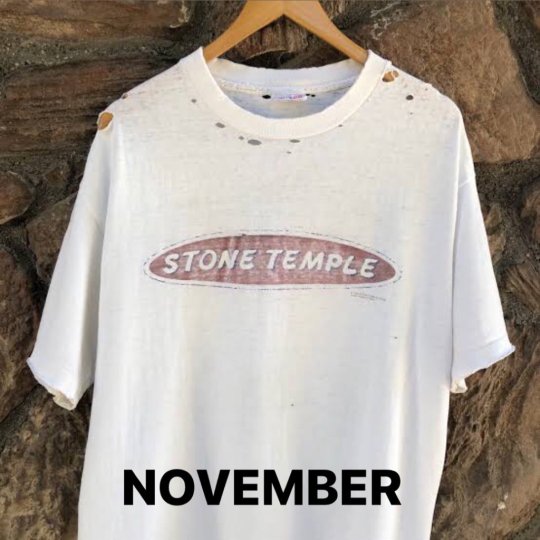

got all the pictures saved haha (still looking for a decent white t-shirt that doesn't look off on my body and a pair of white sneakers)
3 notes
·
View notes
Text
Darling, You're the One I Want
Songfic Writing Challenge Day 9

Paper Rings - Taylor Swift
A/n: we're back, babes! Oof, post vacation has me needing another vacation just to recover
--
She saw Jughead's wince out of the corner of her eye as she unwrapped a brilliant pair of white diamond earrings gifted to her by Veronica. It was so tiny that only someone who spent every day with him and knew him better than he knew himself would have caught it.
“Only the best for my B!” Veronica clapped happily from her perch on Archie's lap. Betty thanked her profusely, getting up to give her a hug, her smile genuine with gratitude to one of her favorite people, but still worrying about Jughead in the back of her mind.
Betty was surrounded by her friends in celebration of her 25th birthday and she felt truly blessed to have all these people in her life.
Toni was sitting with her legs lapped over Cheryl's, the newly engaged - as of last month - Veronica and Archie in their little bubble of joy, Fangs and Kevin curled up next to each other deciding that they are definitely “on” again, and Sweet Pea and Reggie sitting at the kitchen table, being very much Bros and having an arm wrestling contest...again.
And then there was Jughead Jones the third, the love of her life since they were only 15. He was her saving grace as much as she was his. He had recently signed a publishing deal on his book about Jason's murder and the out fall that it caused, a long fought battle that he'd finally won out.
She was so beyond proud of him. She knew all of their friends were, but she had seen him through every long night, every midnight cup of coffee, every frustrated rejection. She had seen the full ten years of this book in the making, and seeing him finally achieve everything he had wanted since he was a little kid writing stories in Archie's treehouse, she knew how much he'd deserved this.
As she opened the next gift Cheryl, a beautiful, white Michael Kors purse, she saw Jughead’s mouth tick as he forced a smile as he abruptly stood, quietly saying that he'd “be right back” and rushed out of the room.
After she hugged her cousin, telling her how much she loved it, and gave it to Veronica to ogle, she followed after her love to their bedroom.
She stood in the doorway, watching him pace back and forth in agitation, biting his thumb nail and running his hand through his hair. She bit her lip in worry.
“Juggie?” His eyes snapped up to her, widening and looking like a cornered animal. “Are you ok, sweetheart? You're worrying me.”
He visibly deflated, reaching out and pulling her towards him, wrapping his much larger frame around her smaller one. Shoving his nose into the strands of her hair, he breathed deeply, letting the smell of her calm and comfort him.
“Jug?” she asked again, her hand stroking up and down his back in assurance that she was there.
He let out a deep sigh, shifting his face so that his cheek rested on the crown of her head.
“Yeah, I'm ok Betts.” She stayed silent, his tone lingering at the end, letting her know that he had more to say. “It's just hard sometimes, ya know? Seeing all the nice things that Veronica and Cheryl can get for you, and you deserve it! Don't get me wrong, you deserve the world and then some, but knowing it's not me that can give it to you? At least, not yet, even with the signing bonus. It's just...it's just so hard and-and I know I'm not handling it with the most grace, but I-I don't know,” he broke off abruptly as if realizing he was rambling.
His arms were tight around her, as if scared she might disappear. She was the very best thing to ever happen to him, his absolute favorite person in the whole world.
“I guess I'm just scared that one day you'll actually wake up and realize that there is someone who can give you all those things, more than I'll ever be able to no matter how many books I publish, and you'll leave me behind.” Betty snorted. “I know, it's crazy, but-”
“Not only is it crazy, it's probably the dumbest thing I have ever heard you say, and I've heard you and Archie play video games.”
“I know, I know. But it's just… I want to marry you Betts. I want to give you this big rock so everyone within a mile can see that you're mine, because it's what you deserve. But it sucks because I want to marry you now and I don't have the ridiculous amount of money for something like that.” Betty pushed him back so he could meet her eyes.
She framed his face between her palms, gently stroking his cheekbones with her thumbs. “Forsythe Pendelton Jones the Third, you listen to me, and you listen good, ok?” He nodded.
“Cheryl and Veronica have a skewed sense of the world and spend money just to spend money, that's what happens when you're an heiress. They don't really have an appreciation for anything less. And yeah, the things they get me are nice and lovely and I like them a lot, but I know that the price of those things barely affects their bank accounts. Knowing how much you toil away and save to get me anything nice is just more to me, especially from you because you're my whole world, Jug.
“And I don't want or need a big rock, good Lord it would be obnoxious.” He laughed at how her nose crinkled at the thought. “Honestly, sweetheart, you could ask me to marry you with a Ring Pop or a paper ring, like the ones we used to make when we were 5, you remember?”
“Yeah,” he chuckled. “You always made the prettiest ones.”
She smiled, “My point being, you can ask me without spending a dime and I would say yes every time, Juggie. I love you and I want to marry you no matter what, ok?” Her green eyes stared into his blue intently.
His gaze held hers, discerning that she was telling him the truth, not that she would ever lie to him. Betty never did with him, their relationship was based 100% honesty. Letting out another sigh, this time of relief, he nodded before pulling her into a passionate kiss.
There was a knocking from the doorway that brought them back to attention that they still had an apartment full of friends and that know wasn't the time to get lost in each other.
“Hey lovebirds, everything ok in here?” Archie inquired, forehead creased in concern for his two best friends.
“Yup!” Betty chimed with a genuine, trademark, Betty Cooper megawatt smile, her hand squeezing Jughead's tightly in continuous reassurance.
“That's great,” he grinned back. “You just have Jug’s present left to open Betty.”
She felt Jug squeeze her hand back, a little too much for just a moment, before relaxing once more into a comforting grip.
She practically skipped out of the room, both boys following in her wake, chuckling at her enthusiasm.
Once back in the living room, Jughead scooped up his present from the coffee table where all the gifts had been gathered, handing it to her with a flourish.
She grinned up at him and wasted no time ripping through the wrapping paper. She got through the tape securing the flaps of the cardboard box together with minor difficulty, only to be met with an explosion of tinsel hiding whatever was in the box from her gaze.
“Really, Juggie?” She gave him a sidelong glace of faked annoyance as their friends laughed. He smirked in response, nodding at her to continue.
“This is going to be a bitch to clean up,” she quipped, throwing handfuls of the glittery strands onto the floor, searching for whatever it is he had hidden in the depths of cardboard.
Her hand wrapped around a small velvet box and she froze, the room going quiet as her eyes grew wide. She couldn't move her hand from still inside the cardboard box, her mind racing, realizing what it was.
“Betts?” Jughead's voice wobbled in slight concern. Her eyes snapped up, reaching his equally as wide eyes, taking in his stance in front of her - one knee on the ground, the other bent.
His hand reached into where hers still was frozen, taking the box from her grasp and pulling it out so all their friends could see. Her eyes never left his as she still was trying to figure out how to breathe.
“Elizabeth Cooper, baby, Betty, Betts. You're my everything. Everything good in my life is because of you, because you fought for me and made it that way. You make me the best possible version of myself, I couldn’t be me without you. I-”
Her brain and her breathing had finally caught up to where she needed them to be, comprehending just what was happening before she launched herself at him, cutting off the rest of his speech as she tackled him to the ground.
“Oof, Betts, I-”
“Yes! Yes yes yes yes yes, a million, billion, trillion times yes!” She pressed her lips his hurriedly, her tongue seeking entrance into his mouth, only vaguely registering all their friends cheering, wolf whistling, and squealing (which distinctly sounded like it came from Reggie).
“You didn't even let me finish!” Jughead laughed, pulling back from her.
“I don't care!” She was sure her face could power Manhattan from how brightly she was smiling. “You can finish it later, I'm just… Oh my god, I'm engaged! I love you so much,” she pressed her lips to his once more, trying to deepen it before he gently pushed her back.
He chuckled at her furrowed brow at his rejection. “Don't you want to see your ring, sweetheart?” He popped the lid of the velvet black box that had stayed securely in his grasp through the altercation, displaying a beautiful thin gold band, with a single brilliant white diamond. Simple, delicate, elegant - Betty in every way.
“I know it's no paper ring,” he ribbed.
“You know I usually hate the word, but it's perfect, Juggie. Even I couldn't make a paper ring this good,” she laughed as he slipped the cool metal onto her left ring finger.
She gazed at it lovingly, watching the facets catch the light, before pulling her fiance in for another kiss, loving just how right the weight felt on her hand.
#songfic writing challenge 2019#day 9#a song that makes you happy#paper rings#taylor swift#bughead#bughead proposal au#riverdale
171 notes
·
View notes
Text
Pluralistic: 21 Mar 2020 (Cool Tools, scientists predict cooperation, Don't Look for the Helpers, after the crisis, a people's bailout, judge vs unicorns, Marc Davis's Haunted Mansion)

Today's links
My appearance on Cool Tools: My favorite gadgets.
UK emergency science panel predicts mass altruism: Reality has a well-known collectivist bias.
Don't Look for the Helpers: The text version of my essay for the new Nightvale anxiety podcast.
After the crisis, a program for transformative change: Pandemic reveals the systems' failures, and what to do about them.
Pandemic stimulus, realpolitik edition: Stephanie Kelton and AOC on a people's bailout.
Beautiful judicial snark: "No, your unicorn trademark is not an emergency."
Marc Davis's Haunted Mansion: What if Marc Davis had sole control over the ride's design?
This day in history: 2005, 2010, 2015, 2019
Colophon: Recent publications, current writing projects, upcoming appearances, current reading
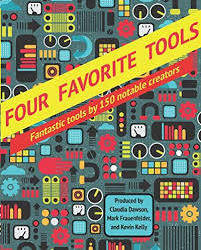
My appearance on Cool Tools (permalink)
This week, I appear on the Cool Tools podcast to discuss my favorite, most indispensible gadgets and services and why I love them.
https://kk.org/cooltools/cory-doctorow-science-fiction-author/
My top picks were my Crkt Snap-Lock knife – a one-handed-opening, lightweight, super versatile pocket knife that I carry everywhere.

https://www.crkt.com/snap-lock.html
I also chose my Chinese OEM underwater MP3 player. I swim every day for my chronic pain maintenance and this is how I make it bearable, getting through 1-2 audiobooks/month.

https://www.amazon.com/exec/obidos/ASIN/B00GWV6GUO/cooltoolsshow-20
My third choice was Libro.fm, the DRM-free, indie-bookseller friendly way to listen to audiobooks. Basically the same catalog as Audible, at the same price, the only difference being that buying from them supports neighborhood booksellers, not Amazon.

It was a really fun! @Frauenfelder and @kevin2kelly are super smart about gadgets.
Here's the MP3:
http://tracking.feedpress.it/link/7810/13374488/779800513-cool-tools-218-cory-doctorow.mp3

UK emergency science panel predicts mass altruism (permalink)
SAGE is the UK Government's Scientific Advisory Group for Emergencies. This is their hour to shine.
They have just published a spectacular, plain-language set of technical reports on the pandemic.
https://www.gov.uk/government/groups/scientific-advisory-group-for-emergencies-sage-coronavirus-covid-19-response
This is the most interesting: "on risk of public disorder."
https://assets.publishing.service.gov.uk/government/uploads/system/uploads/attachment_data/file/873736/08-spi-b-return-on-risk-of-public-disorder.pdf
The expert panel affirms the conclusions of Rebecca Solnit in her indispensable book "A Paradise Built in Hell," a closely researched history of disasters that finds that they are the moment in which people spring to the aid of their neighbors.
https://www.newyorker.com/magazine/2009/10/05/a-paradise-built-in-hell
SAGE's expert panel on disasters: "large scale rioting is unlikely. It is rarely seen in these circumstances. Acts of altruism will predominate, and HMG could readily promote and guide these."
"Where public disorder occurs, it is usually triggered by perceptions about the Government's response, rather than the nature of the epidemic. A perception that Government response strategies are not effective in looking after the public may lead to an increase in tensions."
"Promote a sense of collectivism: All messaging should reinforce a sense of community, that 'we are all in this together.'"
For decades, Britain has been poisoned by Margaret Thatcher's sociopathic maxim, "There is no such thing as society."
It turns out that reality (and pandemics) has a well-known collectivist bias.
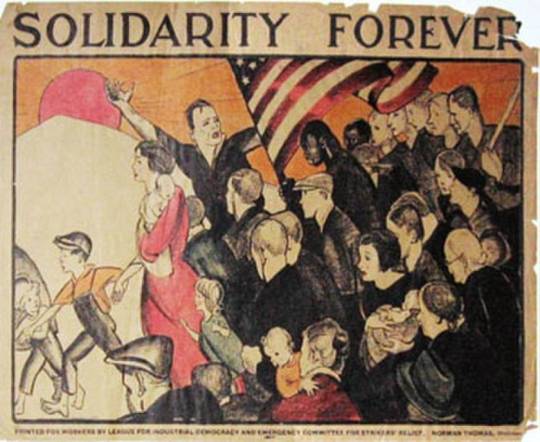
Don't Look for the Helpers (permalink)
I wrote a short essay about how I'm coping with The Current Situation for Our Plague Year, a new podcast from Joseph Fink of Welcome to Nightvale, called "Don't Look for the Helpers".
https://pluralistic.net/2020/03/17/pluralistic-17-mar-2020/#ourplagueyear
Today, PM Press published the essay in a new digital collection, "All We Have Is Each Other."
https://www.pmpress.org/blog/category/blog/all-we-have-is-each-other/
"Assuming things will break down does not make you a dystopian. Engineers who design systems on the assumption that nothing could go wrong aren't utopians, they're idiots who kill people. 'Nothing could go wrong' is why there weren't enough lifeboats on the fucking Titanic."
"Every disaster ends with mutual aid. By definition. That's the only way a disaster can end: with people pulling together. If there's one lesson to take from Mad Max, it's that pulling apart only deepens the crisis, and the it will not end until we pull together."
"I've been telling stories of humanity rising to crisis for decades. Now I'm telling them to myself. I hope you'll keep that story in mind today, as plutocrats are seeking to weaponize narratives to turn our crisis into a self-serving catastrophe."
https://www.pmpress.org/blog/2020/03/19/dont-look-for-the-helpers-by-cory-doctorow/

After the crisis, a program for transformative change (permalink)
The Current Situation has revealed deep cracks in our system: replacing public transit with gig economy drivers who don't get health care or sick leave; the gig economy itself; the lethal inadequacy of private-sector broadband and private-sector health-care, and beyond.
The fact that we can simply abolish data-caps (without networks falling over) and the liquid ban (without planes blowing up) reveals that these supposed existential threats were, in fact, arbitrary, authoritarian, rent-seeking bullshit.
https://pluralistic.net/2020/03/14/masque-of-the-red-death/#security-theater
The people who've spent 40 years convincing us that we're just not free-marketing hard enough continue to insist that all of these problems are merely the result of not having fully dismantled the state (so much for "state capacity libertarianism"):
https://www.bloomberg.com/opinion/articles/2020-03-20/coronavirus-killed-the-progressive-left
They're licking their chops for a 2008-style reboot: eviscerating public services, immiserating workers, fattening plutes and dissolving regulatory safeguards.
It's a playbook developed by Milton Friedman: the scheme to have "ideas lying around" when crisis strikes.
But as Naomi Klein reminds us, the Shock Doctrine cuts both ways. The manifest failures of plutocracy in the Great Depression got us the New Deal and the "30 Glorious Years" of shared prosperity and growth.
https://pluralistic.net/2020/03/17/pluralistic-17-mar-2020/#disaster-socialism
We haven't been idle since 2008. We have "ideas lying around" too. Ideas for a just and resilient society that reorients human life around sustainable and just practices. Motherboard's editorial staff gives us a manifesto for that society, so that this crisis doesn't go to waste:
https://www.vice.com/en_us/article/wxekvw/the-world-after-coronavirus-healthcare-labor-climate-internet
Free and universal healthcare ("healthcare is a basic human right" -B. Sanders)
Abolish ICE and prisons ("ICE is now a public health hazard")
Protect and empower labor ("Without these protections, everyone's safety and health is put at risk")
A healthier climate ("If the 2008-09 financial crash is any indicator, carbon could shoot right back up as soon as the crisis is over")
Fast, accessible broadband ("Community owned/operated broadband networks, long demonized and even prohibited by law are looking better than ever")
Smash the surveillance state ("This pandemic mustn't be used to infringe on the civil liberties and privacy of millions")
Billionaire wealth ("They're sending people to work while jetting off to luxurious doomsday bunkers, getting Covid-19 tests while normal people can't, and also singing 'Imagine' from bucolic getaways.")
Public transit that works ("Congress is poised to prioritize bailing out airlines and the cruise industry before it takes a look at public transit")
The right to repair ("Right-to-repair has become a matter of life and death.")
Science for the people ("We were caught flat-footed by a fixation on 'innovation' and lack of public options")
The future will not be like the past. Whether it is worse or better is our choice to make. It is in our (well-scrubbed) hands.
(Image: Jolove55, CC BY)
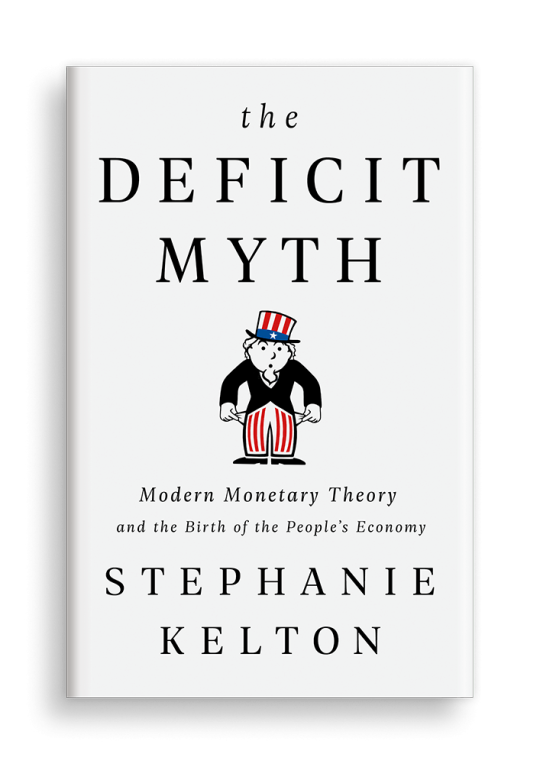
Pandemic stimulus, realpolitik edition (permalink)
I've been thinking a lot about what a covid stimulus package could and should look like, and what the possible failure modes and transformative changes could be. Obviously, there's real risk of inflation if handled wrong, because production has halted, so more money could end up chasing fewer goods. That gets ugly quick.
https://pluralistic.net/2020/03/18/diy-tp/#covid-stimulus
Then there's the risk that we just infuse trillions of no-strings-attached dollars into the finance sector, who use it to make our society even more brittle and unstable by hollowing out reeling companies and grinding down brutalized workers.
https://pluralistic.net/2020/03/19/gb-whatsapp/#peoples-bailout
Writing about this stuff in public makes a lot of Twitter people with "investor" in their bios very, very angry. They want giant bailouts for the companies they own stocks in, not transformative change. They use the neolib tactic of throwing out a lot of jargon to instil a sense of your technical illiteracy. Complexity is a con-artist's go-to tactic, after all – it's why proposition bets are so complicated, so you can't do the odds in your head (see also: craps tables).
But not every economist believes that sociopathy is pareto optimal. Leading lights like Stephanie Kelton, the mother of Modern Monetary Theory, who can go toe-to-toe with oligarch-apologists from the Chicago School, explaining how public debt really works.
Kelton and AOC appeared on this week's Deconstructed podcast with Mehdi Hasan to discuss the true scale of the bailout that will be needed (far more than $1T) to get the economy working again. That number can come down (by lowering working peoples' outgoings through rent/mortgage/student loan holidays, etc). But the lesson of 2008 is that to be credible, stimulus must be transparent and aimed at the public good, not the donor-class.
https://theintercept.com/2020/03/20/deconstructed-podcast-alexandria-ocasio-cortez-coronavirus-economy/
https://dcs.megaphone.fm/FLM7803427023.mp3
Otherwise, Congress risks having its hands tied: it might inject an inadequate and corrupt stimulus that benefits its cronies, then be unable to follow that on with a people's bailout that would help us all.
AOC: "Look at this kind of trash pile of legislation the Republicans have just introduced. I've never seen such a thing in my life of, we're going to give the neediest people less. And we're going to give people who are you know, need help but don't need as much help more."
Kelton: "What people mean when they say, you know, oh, Senator Sanders, you want Medicare for All or you want to make public colleges and universities tuition free, you want to cancel student debt, how are you going to pay for it? Where is the money going to come from? What that means in beltway speak is how are you going to offset all of that spending with new revenue from somewhere else, or by spending less in defense or some other category, the budget?"
"When you do a piece of legislation that's 'paid for,' it means you're putting the 50 billion in and it goes to some parts of the economy, and you're taking 50 billion out of some other parts of the economy so that you're not deficit spending."
"We've been so badly educated to respond to deficits as something that's fiscally irresponsible, reckless. It isn't. The government is committing to dropping dollars into the economy without ripping them right back out again. It's exactly what we want them to do right now."
Kelton's work on Modern Monetary Theory is transformative. Her lectures present both a powerful descriptive account of how money works in the economy and a prescriptive account of how we can use that knowledge to make a better, more prosperous world.
https://www.youtube.com/watch?v=WS9nP-BKa3M
She has a new book about this coming in June, The Deficit Myth. This would be a good time to pre-order it. These are scary times for writers with books about to come out (signed, I have three new books out in 2020).
https://stephaniekelton.com/book/

Beautiful judicial snark (permalink)
As Ken "Popehat" White is fond of reminding us, no one snarks quite like a federal judge. And despite being a Trump appointee, Steven C Seeger manages to rip off a couple zingers in this ruling.
http://loweringthebar.net/2020/03/unicorn-case-not-an-emergency.htm
At issue: Art Ask Agency is upset that someone is counterfeiting their unicorn-logo merch, such as this unicorn-scented candle:
https://artaskagency.com/our-licenses/anne-stokes/unicorn-candle/
But Illinois is in covid lockdown, so its case against a bunch of John Doe (alleged) counterfeiters is on hold. Their lawyer has sent a string of motions to the court asking for an emergency hearing so they can proceed, despite the fact that the court clerks are operating on reduced staff and only dealing with matters of the utmost urgency.
The judge is Not Impressed: "At worst, Defendant might sell a few more counterfeit products in the meantime. But Plaintiff makes no showing about anticipated loss of sales. One wonders if fake fantasy products are experiencing brisk sales at the moment."
The judge takes notice of the time a telephonic hearing would consume, "especially given the girth of the Plaintiff's filings."
"Plaintiff argues that it will suffer an 'irreparable injury' if this court does not put a stop to the infringing unicorns and knock-off elves."
"The world is facing a real emergency. Plaintiff is not."
(Image: Karen Neoh, CC BY)

Marc Davis's Haunted Mansion (permalink)
Along with Passport to Dreams Old and New, the Long Forgotten Blog is the best source of information on the history, design, and evolution of Disney theme-parks.
https://passport2dreams.blogspot.com/
But Long Forgotten focuses on a single ride, the glorious, brilliant Haunted Mansion.
The history of the Haunted Mansion was completely upended in late 2019, when Christopher Merritt published his "Marc Davis in His Own Words," a two-volume compendium of journals and interviews with the legendary Imagineer, who was Merritt's mentor.
https://books.disney.com/book/marc-davis-in-his-own-words/
This is probably the best book of Disney/theme-park history ever published, and that's no surprise, as Merritt has already written the definitive history of Knott's Berry Farm:
https://www.angelcitypress.com/collections/authors-christopher-merritt
And Pacific Ocean Park:
https://www.yesterland.com/pacificoceanpark.html
Merritt is an Imagineer, an artist, and a historian, who has direct, lifelong connections with the original Imagineering team. He has unparalleled access, inside knowledge and perspective. So yeah, that is a fucking great book.
Marc Davis was the best character designer in the original Imagineer cohort: he created the Country Bears, the Pirates, and the Haunted Mansion ghosts. He was a spectacular visual gag master, too. And he was one of the (many) legendary Imagineers who had a hand in designing the Haunted Mansion. That ride had so many different iterations, drafts, plans and schemes, and the final product is so wonderful in part because of their remnants.
But Davis actually designed a full-on Haunted Mansion attraction, from start to finish, and those plans are kicking around. Based on those, Long Forgotten has created a narrative account of what it would be like to tour "Marc Davis's Haunted Mansion."
https://longforgottenhauntedmansion.blogspot.com/2020/03/marc-daviss-haunted-mansion.htm
It's…interesting. Davis had some really fun ideas like meeting up with a talking bust (or raven).

And there are great gags (Davis designed the "three-part" stretching portraits, after all).

I mean. this would have been so freaking boss.
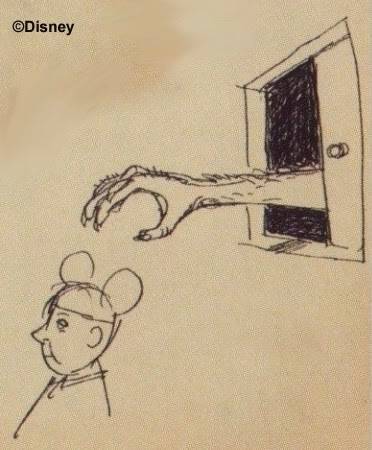
But the real meat is something called "The Most Dangerous Ghost":
"The final picture is perhaps behind black drapes which raise as the ghost host calls out attention to it. As the drapes part we see a painting that has everything in it except a figure. There is perhaps a vague image where the figure should be. The ghost host reacts in a frightened manner. He explains that this is terrible because this is the most dangerous ghost in the mansion. When he climbs out of his picture he mingles with the guests until he has turned one of them into a ghost. He describes the ghost's appearance and its omnipotent powers. He suggests again that everyone should stay in a tight group; this evil ghost loves to pick off stragglers. He suggests that the group be wary of sliding panels, gusts of cold air and etc."
Long Forgotten: "The MDG character undercuts the intellectually sloppy notion that all Davis cared about was making the HM funny."
LF goes on to make a good case that Davis wanted to incorporate many of Rolly Crump's gorgeous "Museum of the Weird" designs into his Mansion.

Davis's seance room seems to flirt with MDG some more: "The presence of the villain ghost makes itself felt and these older retired ghosts are frightened. Whatever we have used to indicate the nearness of the villain ghost would be repeated here."
Davis once planned for a Mansion filled with "working class ghosts" (carpenters, soldiers, boxers, etc). The only ones that survived were the coachmen in the graveyard sequence.

And his bride sequence was very explicit about wedding-night murders, culminating with MDG manifesting amid the guests: "He starts a wild mocking laugh. It clouds up outside. The curtains blow inward. It starts to rain along with thunder and lightning. "Outside we see a figure take form and it moves into the room. The rain comes into the room with the figure and a pool of water forms around its feet."

This is gorgeously scary, but as Long Forgotten points out, it has little re-play value (similar to Tomororwland's Alien Encounter): "The gag about the Ghost Host revealing himself as the Most Dangerous Ghost has the obvious disadvantage that it can surprise you only once. Pretty soon everyone knows the 'secret,' and as its usefulness as a genuine shock or scare tactic fades its status as pure camp inevitably increases."
That all said, "We learn what we should already know but sometimes forget: Marc Davis was never an imperious, one-man show. He was a team player. He interacted creatively with the work already done by previous Imagineers, displaying in this outline nothing but respect for what was good in what they had done."
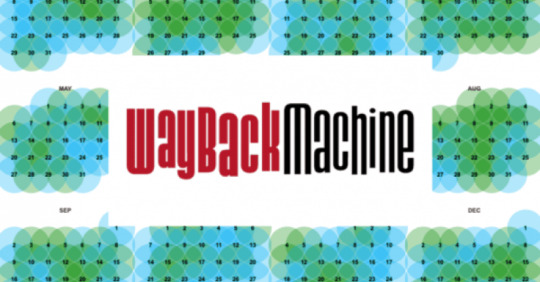
This day in history (permalink)
#15yrsago Disney busts amateur Disneyland tour guide https://web.archive.org/web/20050323133504/http://jimhillmedia.com/mb/articles/showarticle.php?ID=1356
#10yrsago James Randi is gay http://archive.randi.org/site/index.php/swift-blog/914-how-to-say-it.html
#5yrsago Windows 10 announcement: certified hardware can lock out competing OSes https://arstechnica.com/information-technology/2015/03/windows-10-to-make-the-secure-boot-alt-os-lock-out-a-reality/
#1yrago Two arrested for hiding cameras in motel rooms and charging for access to livestreams https://edition.cnn.com/2019/03/20/asia/south-korea-hotel-spy-cam-intl/index.html

Colophon (permalink)
Today's top sources: Ok børge (https://twitter.com/forteller), Beyond the Beyond (http://www.wired.com/category/beyond_the_beyond/).
Currently writing: I've just finished rewrites on a short story, "The Canadian Miracle," for MIT Tech Review. It's a story set in the world of my next novel, "The Lost Cause," a post-GND novel about truth and reconciliation. I've also just completed "Baby Twitter," a piece of design fiction also set in The Lost Cause's prehistory, for a British think-tank. I'm getting geared up to start work on the novel next.
Currently reading: Just started Lauren Beukes's forthcoming Afterland: it's Y the Last Man plus plus, and two chapters in, it's amazeballs. Last month, I finished Andrea Bernstein's "American Oligarchs"; it's a magnificent history of the Kushner and Trump families, showing how they cheated, stole and lied their way into power. I'm getting really into Anna Weiner's memoir about tech, "Uncanny Valley." I just loaded Matt Stoller's "Goliath" onto my underwater MP3 player and I'm listening to it as I swim laps.
Latest podcast: The Masque of the Red Death and Punch Brothers Punch https://craphound.com/podcast/2020/03/16/the-masque-of-the-red-death-and-punch-brothers-punch/
Upcoming books: "Poesy the Monster Slayer" (Jul 2020), a picture book about monsters, bedtime, gender, and kicking ass. Pre-order here: https://us.macmillan.com/books/9781626723627?utm_source=socialmedia&utm_medium=socialpost&utm_term=na-poesycorypreorder&utm_content=na-preorder-buynow&utm_campaign=9781626723627
(we're having a launch for it in Burbank on July 11 at Dark Delicacies and you can get me AND Poesy to sign it and Dark Del will ship it to the monster kids in your life in time for the release date).
"Attack Surface": The third Little Brother book, Oct 20, 2020. https://us.macmillan.com/books/9781250757531
"Little Brother/Homeland": A reissue omnibus edition with a new introduction by Edward Snowden: https://us.macmillan.com/books/9781250774583
16 notes
·
View notes
Text
#personal
I had to clear the porch of all my plants yesterday. I was asked to move them by my landlord’s wife so that dirt didn’t get into the air conditioner below. Yesterday the husband banged on my door and read me the riot act. In his mind, this is not something I argue with. And honestly over the years, it’s been cheaper not to complain. That is until you realize you are cloistered into a literal daily soap opera with everyone’s hearts on their sleeve. Including the police. I honestly don’t have the capacity to worry about anything except my own private space these days. Everybody seems to know something about me on the surface but not the whole story. People brush by with projected questions every day. They snoop. They follow. They try to get a read on what I’m thinking. Which boggles my fucking mind because I’ve written it here weekly for over five years now. Some people on here know me more intimately than anyone in real life. I think that is special and a large reason why I’ve kept things very ethereal and romantic here. I don’t force myself into anything or anyone’s life. And yet I find myself encroached on in such a unsafe and disastrous way I don’t know where to go anymore. I’m stuck. The last three responses on LinkedIn were women I didn’t know. The first from the post office I was nice to then ignored. The second was an unsolicited request from a student at NYU. I ignored that one. Then an all too obvious ghost profile from Atlanta that worked as a makeup artist for Ulta. All of them I found a light way of saying I’m on the platform for professional reasons. All of them I feared were catfishing especially when the conversations turned to “do you wanna hang out?” The last one was a little more human and I need connections. Professional ones. My last job and everything with it just ghosted me in the most heinous way possible. I’m in a vulnerable position seemingly. And everyone seems to think this is the final blow. They’re closing in for the kill. They’ve surrounded themselves around me. I can’t escape. The whole neighborhood has me on trial every square inch I walk. None of it makes sense unless you count the police down the block making sure I’ve been made contact with. It’s surreal and not so obviously unconstitutional. It’s my life every day now. It sounds like shit out of a spy movie. And this is what my life has become. And if I talk about it openly I’m the first to be shoved in the oven and gaslighted. How did it come to this? I don’t really care. The lesson I have learned from all of this is that time and distance will tell. Nobody knows how drastically my financial state has changed other than my bank. And this entire time being tortured, followed, analyzed and picked over I’ve just been building up equity week by week. The plants didn’t go to waste. I rearranged them in the bathroom. It made things less scary. The only place where I feel safe anymore. Inside the locked doors of my apartment.
If I were to sum it all up with one phrase. This is the phrase. What the literal fuck is wrong with people? The answer is too dark to repeat. This is just how people are. You can be above it. Or you can sink to the bottom with the rest of the trash that floats down there. I tend to stay away from everyone. People have year after year pinned the blame on me. And yet no one can stop reaching out to me or pressuring me to be a part of something I’m not. Welcome to society I guess. It makes me angry. And the one thing I’ve had the luxury of not being the last few weeks is angry. I’m not the hulk. I am hiding a blinding rage inside me. But it’s not my own. And I realize sometimes that for all the shit people try with me, it’s a sure sign none of it works. I’m somewhere else entirely. Wondering if I should seek out a job in China next year and prepare my language skills the rest of the year. Wondering if I will even have to work at all after all of this. It’s all going to cave in at some point. Nobody can go through what I’ve gone through and just disappear. Unless someone really feels they need to off me. Which is a fear I live with for no real purpose. I don’t really gain anything from being exiled and ignored. Some great big test year after year about how one day I’ll be “discovered.” What the fuck am I doing down here writing for anyway? I’m 46. I’d play Khan in a Star Trek reboot. But really I’m trying to connect just like everyone else. And people have consistently taken this as a vulnerability or a mental illness to manipulate and turn on me. That’s just the evil of human nature. Life teaches me that evil people will just tell you it’s in their dna. They fuck into existence enough tax havens. The panama papers made sure of bringing that to light. But here I am an only child with no legacy other than my parents who one day will cease to be. I’ll be out here paying my taxes until my dying breath while people use them to fund police actions so blatantly corrupt you’d better be putting the rest into a good lawyer. Chicago is a city of lawsuits. And I fear sometimes it’s just a con on top of a con. They had it set up. Destroy my life and offer me no choice but to accept their version of what I should be. And they got caught with their pants down so much that I feel it’s not so much a cover up but an orgy of greed and corruption. Chicago is no better than Donald Trump in that respect. Neither are both sides of the political coin people roll down the street to you as bait. You can make a change. I can actually. I received an email that my vote by mail ballot was accepted. The email account that wasn’t locked out after twenty years of service to an art school that I gave my very soul to. No student loans to show for it either.
I can tell you how this all ends. It ends great for me. And bad for anyone who is tied to holding me back. I know this because a year ago I was far worse off. And I have been the only person I can ultimately rely on these days. My own good judgement. My own legacy which people cast doubt on. My body of work that reaches past a job that never wanted me to be me. I learned a lot about being inclusive. How to be an ally in my own way. I’ve seen that respected and appreciated down here. I’ve put it into practice in my life in my search for a new career. I’m not looking for a job. I don’t need to be plugged back into some matrix of human capital for the sake of maximizing the GDP. I’m not interested in people forcing their ideas of what is best for me in a hidden, corrupt fashion. The big brother nation state here is nothing to brag about. We are far worse than China in that respect. Americans are at the mercy of capital. We are bullied by landlords, developers, politicians, police, institutions, and countless other mobs. When we disagree, we are put on trial and hunted until we admit we are wrong. We are watched with the human eye from the shadows like a rabid animal breathing down our necks. No luxury of the fourth wall of CCTV. We are conned and herded into ghettos and experimented on for marketing pogroms. We are told we are irrational when we question a 2 trillion dollar valued company’s need for 30% of profits from independent developers. We are sick and tired of hearing your endless excuses. We see how full of shit you are. And some of us revolt. Some of us tear it down. And some of us sit back knowing full well this is the way it has ended for some of us. My love of this country. My freedom that isn’t free. The lie I live from day to day. Sounds very depressing. I must have brought it on myself. And I did partially. Trying to get close to something real. I got very close to myself. I ended up healing myself in ways I didn’t know I needed. And I ended up being in a very different place while people around me stayed the same. I feel tied down. I feel torn apart. But mostly I feel indifferent because you can’t hurt me any more if I don’t believe you have any power over me. And this is the boring nature of my life now. I sit back and plan like I always do. Get things in order. Know what my rights are. Know how badly they’ve been violated. And know the world is just a planet in the universe. A planet we both share. Air we both breathe. Private and intimate thoughts that are stuck inside my head only to be pried out with forceful hands. They’ve tried for years. I have too many scars to show for it. And they’ve never heard the secret out of my mouth. Or if they did they never really listened. It’s not about them. It’s about us. <3 Tim
1 note
·
View note
Link
In the heart of the US Capitol there’s a small men’s room with an uplifting Franklin Delano Roosevelt quotation above the door. Making use of the facilities there after lunch in the nearby House dining room about a year ago, I found myself standing next to Trent Lott. Once a mighty power in the building as Senate Republican leader, he had been forced to resign his post following some imprudently affectionate references to his fellow Republican senator, arch-segregationist Strom Thurmond. Now he was visiting the Capitol as a lucratively employed lobbyist.
The bathroom in which we stood, Lott remarked affably, once served a higher purpose. History had been made there. “When I first came to Washington as a junior staffer in 1968,” he explained, “this was the private hideaway office of Bill Colmer, chairman of the House Rules Committee.” Colmer, a long-serving Mississippi Democrat and Lott’s boss, was an influential figure. The committee he ruled controlled whether bills lived or died, the latter being the customary fate of proposed civil-rights legislation that reached his desk. “On Thursday nights,” Lott continued, “he and members of the leadership from both sides of the House would meet here to smoke cigars, drink cheap bourbon, play gin rummy, and discuss business. There was a chemistry, they understood each other. It was a magical thing.” He sighed wistfully at the memory of a more harmonious age, in which our elders and betters could arrange the nation’s affairs behind closed doors.
I don’t know that Joe Biden, currently leading the polls for the 2020 Democratic presidential nomination, ever frequented that particular restroom, in either its bygone or contemporary manifestation, but it could serve as a fitting shrine to all that he stands for. Biden has long served as high priest of the doctrine that our legislative problems derive merely from superficial disagreements, rather than fundamental differences over matters of principle. “I believe that we have to end the divisive partisan politics that is ripping this country apart,” he declared in the Rose Garden in 2015, renouncing a much-anticipated White House run. “It’s mean-spirited. It’s petty. And it’s gone on for much too long. I don’t believe, like some do, that it’s naïve to talk to Republicans. I don’t think we should look on Republicans as our enemies.”
Given his success in early polling, it would seem that this message resonates with many voters, at least when they are talking to pollsters. After all, according to orthodox wisdom, there is no more commendable virtue in American political custom and practice than bipartisanship. Politicians on the stump fervently assure voters that they will strive with every sinew to “work across the aisle” to deliver “commonsense solutions,” and those who express the sentiment eloquently can expect widespread approval. Barack Obama famously launched himself toward the White House with his 2004 speech at the Democratic National Convention proclaiming that there is “not a liberal America and a conservative America,” only a “United States of America.”
By tapping into these popular tropes—“The system is broken,” “Why can’t Congress just get along?”—the practitioners of bipartisanship conveniently gloss over the more evident reality: that the system is under sustained assault by an ideology bent on destroying the remnants of the New Deal to the benefit of a greed-driven oligarchy. It was bipartisan accord, after all, that brought us the permanent war economy, the war on drugs, the mass incarceration of black people, 1990s welfare “reform,” Wall Street deregulation and the consequent $16 trillion in bank bailouts, the 2001 Authorization for Use of Military Force, and other atrocities too numerous to mention. If the system is indeed broken, it is because interested parties are doing their best to break it.
Rather than admit this, Biden has long found it more profitable to assert that political divisions can be settled by men endowed with statesmanlike vision and goodwill—in other words, men such as himself. His frequent eulogies for public figures have tended to play heavily on this theme. Thus his memorial speech for Republican standard-bearer John McCain dwelled predictably on the cross-party nature of their relationship, beginning with his opening: “My name is Joe Biden. I’m a Democrat, and I loved John McCain.” Continuing in that vein, he related how he and McCain had once been chided by their respective party leaderships for spending so much time in each other’s company on the Senate floor, and referred fondly to the days when senators Teddy Kennedy and James Eastland, the latter a die-hard racist and ruthless suppressor of civil-rights bills, would “fight like hell on civil rights and then go have lunch together, down in the Senate dining room.”
Clearly, there is merit in the ability to craft compromise between opposing viewpoints in order to produce an effective result. John Ritch, formerly a US ambassador and top aide on the Senate Foreign Relations Committee, worked closely with Biden for two decades, and has nothing but praise for his negotiating skills. “I’ve never seen anyone better at presiding over a group of politicians who represent conflicting egos and interests and using a combination of conciliation, humor, and muscle to cajole them into an agreed way forward,” Ritch told me recently. “Joe Biden has learned the skills to get things done in Washington. And I’ve seen him apply it equally with foreign leaders.”
The value of compromise, however, depends on what result is produced, and who benefits thereby. McCain’s record had at least a few commendable features, such as his opposition to torture (though never, of course, war). But it is hard to find much admirable in the character of a tireless defender of institutional racism like Strom Thurmond. Hence, Trent Lott’s words of praise—regretting that the old racist had lost when he ran as a Dixiecrat in the 1948 presidential election—had been deemed terminally unacceptable.
It fell to Biden to highlight some redeeming qualities when called on, inevitably, to deliver Thurmond’s eulogy following the latter’s death in 2003 at the age of one hundred. Biden reminisced with affection about the unlikely friendship between the deceased and himself. Despite having arrived at the Senate at age twenty-nine “emboldened, angered, and outraged about the treatment of African Americans in this country,” he said, he nevertheless found common cause on important issues with the late senator from South Carolina, who had been wont to describe civil-rights activists as “red pawns and publicity seekers.”
One such issue, as Branko Marcetic has pitilessly chronicled in Jacobin, was a shared opposition to federally mandated busing in the effort to integrate schools, an opposition Biden predicted would be ultimately adopted by liberal holdouts. “The black community justifiably is jittery,” Biden admitted to the Washington Post in 1975 with regard to his position. “I’ve made it—if not respectable—I’ve made it reasonable for longstanding liberals to begin to raise the questions I’ve been the first to raise in the liberal community here on the [Senate] floor.”
Biden was responding to criticism of legislation he had introduced that effectively barred the Department of Health, Education, and Welfare from compelling communities to bus pupils using federal funds. This amendment was meant to be an alternative to a more extreme proposal put forward by a friend of Biden’s, hall-of-fame racist Jesse Helms (Biden had initially supported Helms’s version). Nevertheless, the Washington Post described Biden’s amendment as “denying the possibility for equal educational opportunities to minority youngsters trapped in ill-equipped inner-city schools.” Edward Brooke of Massachusetts, then the sole African-American senator, called Biden’s measure “the greatest symbolic defeat for civil rights since 1964.”
By the 1980s, Biden had begun to see political gold in the harsh antidrug legislation that had been pioneered by drug warriors such as Nelson Rockefeller and Richard Nixon, and would ultimately lead to the age of mass incarceration for black Americans. One of his Senate staffers at the time recalls him remarking, “Whenever people hear the words ‘drugs’ and ‘crime,’ I want them to think ‘Joe Biden.’” Insisting on anonymity, this former staffer recollected how Biden’s team “had to think up excuses for new hearings on drugs and crime every week—any connection, no matter how remote. He wanted cops at every public meeting—you’d have thought he was running for chief of police.”
The ensuing legislation might also have brought to voters’ minds the name of the venerable Thurmond, Biden’s partner in this effort. Together, the pair sponsored the 1984 Comprehensive Crime Control Act, which, among other repressive measures, abolished parole for federal prisoners and cut the amount of time by which sentences could be reduced for good behavior. The bipartisan duo also joined hands to cheerlead the passage of the 1986 Anti-Drug Abuse Act and its 1988 follow-on, which cumulatively introduced mandatory sentences for drug possession. Biden later took pride in reminding audiences that “through the leadership of Senator Thurmond, and myself, and others,” Congress had passed a law mandating a five-year sentence, with no parole, for anyone caught with a piece of crack cocaine “no bigger than [a] quarter.” That is, they created the infamous disparity in penalties between those caught with powder cocaine (white people) and those carrying crack (black people). Biden also unblushingly cited his and Thurmond’s leading role in enacting laws allowing for the execution of drug dealers convicted of homicide, and expanding the practice of civil asset forfeiture, law enforcement’s plunder of property belonging to people suspected of crimes, even if they are neither charged nor convicted.
Despite pleas from the NAACP and the ACLU, the 1990s brought no relief from Biden’s crime crusade. He vied with the first Bush Administration to introduce ever more draconian laws, including one proposing to expand the number of offenses for which the death penalty would be permitted to fifty-one. Bill Clinton quickly became a reliable ally upon his 1992 election, and Biden encouraged him to “maintain crime as a Democratic initiative” with suitably tough legislation. The ensuing 1994 Violent Crime Control and Law Enforcement Act, passed with enthusiastic administration pressure, would consign millions of black Americans to a life behind bars.
In subsequent years, as his crime legislation, particularly on mandatory sentences, attracted efforts at reform, Biden began expressing a certain remorse. “I am part of the problem that I have been trying to solve since then, because I think the disparity [between crack and powder cocaine sentences] is way out of line,” he declared at a Senate hearing in 2008. However, there is little indication that his words were matched by actions, especially after he moved to the vice presidency the following year. The executive director of the Criminal Justice Policy Foundation, Eric Sterling, who worked on the original legislation in the House as a congressional counsel, told me, “During the eight years he was vice president, I never saw him take a leadership role in the area of drug policy, never saw him get out in front on the issue like he did on same-sex marriage, for example. Biden could have taken a stronger line [with Obama] privately or publicly, and he did not.”
While many black Americans will neither forgive nor forget how they, along with relatives and friends, were accorded the lifetime stigma of a felony conviction, many other Americans are only now beginning to count the costs of these viciously repressive initiatives. As a result, criminal justice reform has emerged as a popular issue across the political spectrum, including among conservatives eager to burnish otherwise illiberal credentials. Ironically, this has led, in theory, to a modest unraveling of a portion of Biden’s bipartisan crime-fighting legacy.
Last December, as Donald Trump’s erratic regime was falling into increasing disarray, the political-media class briefly united in celebration of an exercise in bipartisanship: the First Step Act. Billed as a long overdue overhaul of the criminal justice system, the legislation received rapturous reviews for its display of cross-party cooperation, headlined by Jared Kushner’s partnership with liberal talk-show host Van Jones. In truth, this was a very modest first step. It offered the possibility of release to some 2,600 federal inmates, whose relief from excessive sentences would require the goodwill of both prosecutors and police, as well as forbidding some especially barbaric practices in federal prisons, such as the shackling of pregnant inmates. Overall, it amounted to little more than a textbook exercise in aisle bridging, a triumph of form over substance.
In the near term, it’s unlikely that there will be further bipartisan attempts to chip away at Biden’s legislative legacy, a legacy that includes an inconsistent (to put it mildly) record on abortion rights. Roe v. Wade “went too far,” he told an interviewer in 1974. “I don’t think that a woman has the sole right to say what should happen to her body.” For some years his votes were consistent with that view. He supported the notorious Hyde Amendment prohibiting any and all federal funding for abortions, and fathered the “Biden Amendment” that banned the use of US foreign aid for abortion research.
As the 1980s wore on, however, and Biden’s presidential ambitions started to swell, he began to cast fewer antiabortion votes (with some exceptions), and led the potent opposition to Judge Robert Bork’s Supreme Court nomination as chairman of the Senate Judiciary Committee. Then came Clarence Thomas. Even before Anita Hill reluctantly surfaced with her convincing recollections of unpleasant encounters with the porn-obsessed judge, Biden was fumbling his momentous responsibility of directing the hearings. As Jane Mayer and Jill Abramson report in Strange Justice, their book about the Thomas nomination battle, Biden’s questions were “sometimes so long and convoluted that Thomas would forget what the question was.” Biden prided himself on his legal scholarship, Mayer and Abramson suggest, and thus his questions were often designed “to show off [his] legal acumen rather than to elicit answers.”
More damningly, Biden not only allowed fellow committee members to mount a sustained barrage of vicious attacks on Hill: he wrapped up the hearings without calling at least two potential witnesses who could have convincingly corroborated Hill’s testimony and, by extension, indicated that the nominee had perjured himself on a sustained basis throughout the hearings. As Mayer and Abramson write, “Hill’s reputation was not foremost among the committee’s worries. The Democrats in general, and Biden in particular, appear to have been far more concerned with their own reputations,” and feared a Republican-stoked public backlash if they aired more details of Thomas’s sexual proclivities. Hill was therefore thrown to the wolves, and America was saddled with a Supreme Court justice of limited legal qualifications and extreme right-wing views (which he had taken pains to deny while under oath).
Fifteen years later, Biden would repeat this exercise in hearings on the Supreme Court nomination of Samuel Alito, yet another grim product of the Republican judicial-selection machinery. True to form, in his opening round of questions, Biden droned on for the better part of half an hour, allowing Alito barely five minutes to explain his views. As the torrent of verbiage washed over the hearing room, fellow Democratic Senator Patrick Leahy could only glower at Biden in impotent frustration.
Biden’s record on race and women did him little damage with the voters of Delaware, who regularly returned him to the Senate with comfortable margins. On race, at least, Biden affected to believe that Delawareans’ views might be closer to those of his old buddy Thurmond than those of the “Northeast liberal” he sometimes claimed to be. “You don’t know my state,” he told Fox as he geared up for his first attempt on the White House in 2006. “My state was a slave state. My state is a border state. My state has the eighth-largest black population in the country. My state is anything [but] a Northeast liberal state.” Months later, in front of a largely Republican audience in South Carolina, he joked that the only reason Delaware had fought with the North in the Civil War was “because we couldn’t figure out how to get to the South. There were a couple of states in the way.”
Whether or not most Delawareans are proud of their slaveholding history, there are some causes that they, or at least the dominant power brokers in the state, hold especially dear. Foremost among them is Delaware’s status as a freewheeling tax haven. State laws have made Delaware the domicile of choice for corporations, especially banks, and it competes for business with more notorious entrepôts such as the Cayman Islands. Over half of all US public companies are legally headquartered there.
“It’s a corporate whore state, of course,” the anonymous former Biden staffer remarked to me offhandedly in a recent conversation. He stressed that in “a small state with thirty-five thousand bank employees, apart from all the lawyers and others from the financial industry,” Biden was never going to stray too far from the industry’s priorities. We were discussing bankruptcy, an issue that has highlighted Biden’s fealty to the banks. Unsurprisingly, Biden was long a willing foot soldier in the campaign to emasculate laws allowing debtors relief from loans they cannot repay. As far back as 1978, he helped negotiate a deal rolling back bankruptcy protections for graduates with federal student loans, and in 1984 worked to do the same for borrowers with loans for vocational schools. Even when the ostensible objective lay elsewhere, such as drug-related crime, Biden did not forget his banker friends. Thus the 1990 Crime Control Act, with Biden as chief sponsor, further limited debtors’ ability to take advantage of bankruptcy protections.
These initiatives, however, were only precursors to the finance lobby’s magnum opus: the 2005 Bankruptcy Abuse Prevention and Consumer Protection Act. This carefully crafted flail of the poor made it almost impossible for borrowers to get traditional “clean slate” Chapter 7 bankruptcy, under which debt forgiveness enables people to rebuild their lives and businesses. Instead, the law subjected them to the far harsher provisions of Chapter 13, effectively turning borrowers into indentured servants of institutions like the credit card companies headquartered in Delaware. It made its way onto the statute books after a lopsided 74–25 vote (bipartisanship!), with Biden, naturally, voting in favor.
It was, in fact, the second version of the bill. An earlier iteration had passed Congress in 2000 with Biden’s support, but President Clinton refused to sign it at the urging of the first lady, who had been briefed on its iniquities by Elizabeth Warren. A Harvard Law School professor at the time, Warren witheringly summarized Biden’s advocacy of the earlier bill in a 2002 paper:
His energetic work on behalf of the credit card companies has earned him the affection of the banking industry and protected him from any well-funded challengers for his Senate seat.
Furthermore, she added tartly, “This important part of Senator Biden’s legislative work also appears to be missing from his Web site and publicity releases.” No doubt coincidentally, the credit card giant MBNA was Biden’s largest contributor for much of his Senate career, while also employing his son Hunter as an executive and, later, as a well-remunerated consultant.
It should go without saying, then, that Biden was among the ninety senators on one of the fatal (to the rest of us) legislative gifts presented to Wall Street back in the Clinton era: the Gramm–Leach–Bliley Act of 1999. The act repealed the hallowed Depression-era Glass–Steagall legislation that severed investment banking from commercial banking, thereby permitting the combined operations to gamble with depositors’ money, and ultimately ushering in the 2008 crash. “The worst vote I ever cast in my entire time in the United States Senate,” admitted Biden in December 2016, as he prepared to leave office. Seventeen years too late, he explained that the act had “allowed banks with deposits to take on risky investments, putting the whole system at risk.”
In the meantime, of course, he had been vice president of the United States for eight years, and thus in a position to address the consequences of his (and his fellow senators’) actions by using his power to press for criminal investigations. His longtime faithful aide, Ted Kaufman, in fact, had taken over his Senate seat and was urging such probes. Yet there is not the slightest sign that Biden used his influence to encourage pursuit of the financial fraudsters. As he opined in a 2018 talk at the Brookings Institution, “I don’t think five hundred billionaires are the reason we’re in trouble. The folks at the top aren’t bad guys.” Characteristically, he described gross inequalities in wealth mainly as a threat to bipartisanship: “This gap is yawning, and it’s having the effect of pulling us apart. You see the politics of it.”
Biden’s rightward bipartisan inclinations are not the only source of his alleged appeal. In an imitation of Hillary Clinton’s tactics in the lead-up to the 2016 election, Biden has advertised himself as the candidate of “experience.” Indeed, in his self-estimation he is the “most qualified person in the country to be president.” It’s a claim mainly rooted in foreign policy, a field where, theoretically, partisan politics are deposited at the water’s edge and Biden’s negotiating talents and expertise are seen to their best advantage.
He boasts the same potent acquaintances with world leaders that helped earn Clinton a similar “most qualified” label on her failed presidential job application and, like her, has been a reliable hawk, not least when occupying the high-profile chairmanship of the Senate Foreign Relations Committee. An ardent proponent of NATO expansion into Eastern Europe, an ill-conceived initiative that has served as an enduring provocation of Russian hostility toward the West, Biden voted enthusiastically to authorize Bush’s 2003 invasion of Iraq, was a major proponent of Clinton’s war in Kosovo, and pushed for military intervention in Sudan.
Presumably in deference to this record, Obama entrusted his vice president with a number of foreign policy tasks over the years, beginning with “quarterbacking,” as Biden put it, US relations with Iraq. “Joe will do Iraq,” the president told his foreign policy team a few weeks after being sworn in. “He knows it, he knows the players.” It proved to be an unfortunate choice, at least for Iraqis. In 2006, the US ambassador to Iraq, Zalmay Khalilzad, had selected Nouri al-Maliki, a relatively obscure Shiite politician, to be the country’s prime minister. “Are you serious?” exclaimed a startled Maliki when Khalilzad informed him of the decision. But Maliki proved to be a determinedly sectarian ruler, persecuting the Sunni tribes that had switched sides to aid US forces during the so-called surge of 2007–08. In addition, he sparked widespread allegations of corruption. According to the Iraqi Commission of Integrity set up after his departure, as much as $500 billion was siphoned off from government coffers during Maliki’s eight years in power.
In the 2010 parliamentary elections, one of Maliki’s rivals, boasting a nonsectarian base of support, won the most seats, though not a majority. According to present and former Iraqi officials, Biden’s emissaries pressed hard to assemble a coalition that would reinstall Maliki as prime minister. “It was clear they were not interested in anyone else,” one Iraqi diplomat told me. “Biden himself was very scrappy—he wouldn’t listen to argument.” The consequences were, in the official’s words, “disastrous.” In keeping with the general corruption of his regime, Maliki allowed the country’s security forces to deteriorate. Command of an army division could be purchased for $2 million, whereupon the buyer might recoup his investment with exactions from the civilian population. Therefore, when the Islamic State erupted out of Syria and moved against major Iraqi cities, there were no effective defenses. With Islamic State fighters an hour’s drive from Baghdad, the United States belatedly rushed to push Maliki aside and install a more competent leader, the Shiite politician and former government minister Haider al-Abadi. (Biden’s camp disputed the Iraqi official’s assertion that the United States pressed for Maliki in 2010. “We had no brief for any individual,” said Tony Blinken, who served as Biden’s national security adviser at the time.)
Biden devotes considerable space to this episode in Promise Me, Dad, his political and personal memoir documenting the year in which his son Beau slowly succumbed to cancer. But although we learn much about Biden’s relationship with Abadi, and the key role he played in getting vital help to the beleaguered Iraqi regime, there is little indication of his past with Maliki aside from a glancing reference to “stubbornly sectarian policies.”
Promise Me, Dad also covers Biden’s involvement in the other countries allotted to him by President Obama: Ukraine, El Salvador, Guatemala, and Honduras. Anyone seeking insight from the book into the recent history of these regions, or of actual US policy and actions there, should look elsewhere. He has little to say, for example, about the well-chronicled involvement of US officials in the overthrow of Ukraine’s elected government in 2014, still less on whether he himself was involved. He records his strenuous efforts to funnel IMF loans to the country following anti-corruption measures introduced by the government without noting that much of the IMF money was almost immediately stolen and spirited out of Ukraine by an oligarch close to the government. Nor, for that matter, do we learn anything about his son Hunter’s involvement in that nation’s business affairs via his position on the board of Burisma, a natural gas company owned by a former Ukrainian ecology minister accused by the UK government of stealing at least $23 million of Ukrainian taxpayers’ money.
Biden’s recollections of his involvement in Central American affairs are no more forthright, and no more insightful. There is no mention of the 2009 coup in Honduras, endorsed and supported by the United States, that displaced the elected president, Manuel Zelaya, nor of that country’s subsequent descent into the rule of a corrupt oligarchy accused of ties to drug traffickers. He has nothing but warm words for Juan Orlando Hernández, the current president, who financed his 2013 election campaign with $90 million stolen from the Honduran health service and more recently defied his country’s constitution by running for a second term. Instead, we read much about Biden’s shepherding of the Hernández regime, along with its Central American neighbors El Salvador and Guatemala, into the Alliance for Prosperity, an agreement in which the signatories pledged to improve education, health care, women’s rights, justice systems, etc., in exchange for hundreds of millions of dollars in US aid. In the words of Professor Dana Frank of UC Santa Cruz, the alliance “supports the very economic sectors that are actively destroying the Honduran economy and environment, like mega-dams, mining, tourism, and African palms,” reducing most of the population to poverty and spurring them to seek something better north of the border. The net result has been a tide of refugees fleeing north, most famously exemplified by the “caravan” used by Donald Trump to galvanize support prior to November’s congressional elections.
Biden’s claims of experience on the world stage, therefore, cannot be denied. True, the experience has been routinely disastrous for those on the receiving end, but on the other hand, that is a common fate for those subjected, under any administration, to the operations of our foreign policy apparatus.
Given Biden’s all too evident shortcomings in the fields of domestic and foreign policy, defenders inevitably retreat to the “electability” argument, which contends that he is the only Democrat on the horizon capable of beating Trump—a view that Biden, naturally, endorses. Specifically, this notion rests on the belief that Biden has unequaled appeal among the white working-class voters that many Democrats are eager to court.
To be fair, Biden has earned high ratings from the AFL-CIO thanks to his support for matters such as union organizing rights and a higher minimum wage. On the other hand, he also supported NAFTA in 1994 and permanent normal trade relations with China in 2000, two votes that sounded the death knell for America’s manufacturing economy. Regardless of how justified his pro-labor reputation may be, however, it’s far from clear that the working class holds Biden in any special regard—his two presidential races imploded before any blue-collar workers had a chance to vote for him.
It is this fact that makes the electability argument so puzzling. Biden’s initial bid for the prize in 1988 famously blew up when rivals unkindly publicized his plagiarism of a stump speech given by Neil Kinnock, a British Labour Party politician. (In Britain, Kinnock was known as “the Welsh Windbag,” which may have encouraged the logorrheic Biden to feel a kinship.) Biden partisans pointed out that he had cited Kinnock on previous occasions, though he didn’t always remember to do so. Either way, it was a bizarre snafu. It also emerged that Biden had been incorporating chunks of speeches from both Bobby and Jack Kennedy along with Hubert Humphrey in his remarks without attribution (although reportedly some of this was the work of speechwriter Pat Caddell).
Another gaffe helped upend Biden’s second White House bid, in 2007, when he referred to Barack Obama in patronizing terms as “the first mainstream African American who is articulate and bright and clean and a nice-looking guy.” The campaign cratered at the very first hurdle, the Iowa caucuses, where Biden came in fifth, with less than 1 percent of the votes. “It was humiliating,” recalled the ex-staffer. (The “gaffes” seem to take physical form on occasion. “He has a bit of a Me Too problem,” a leading female Democratic activist and fund-raiser told me, referring to his overly tactile approach to interacting with women. “We never had a talk when he wasn’t stroking my back.” He has already faced heckling on the topic, and videos of this behavior during the course of public events and photo ops have been widely circulated.)
Further to the issue of Biden’s assurances that he is the man to beat Trump is the awkward fact that, as the former staffer told me, “he lacks the discipline to build the nuts and bolts of a modern presidential campaign.” Biden “hated having to take orders from [David] Axelrod and the other Obama people as a vice-presidential candidate in 2008. Campaign aides used to say to him, ‘I’ve got three words for you: Air Force Two.’” My informant stressed that Biden “sucks at fund-raising. He never had to try very hard in Delaware. Staff would do it for him.” Certainly, Biden’s current campaign funds would appear to confirm this contention. His PAC, American Possibilities, had raised only two and a half million dollars by the end of 2018, a surprisingly insignificant amount for a veteran senator and two-term vice president. Furthermore, although the PAC’s stated purpose is to “support candidates who believe in American possibilities,” less than a quarter of the money had found its way to Democratic candidates in time for the November midterms, encouraging speculation that Biden is not really that serious about the essential brass tacks of a presidential campaign—which would include building a strong base of support among Democratic officeholders.
Other organizations in the Biden universe behave similarly, expending much of their income on staff salaries and little on their ostensible function. According to an exhaustive New York Times investigation, salaries accounted for 45 percent of spending by the Beau Biden Foundation for the Protection of Children in 2016 and 2017. Similarly, three quarters of the money the Biden Cancer Initiative spent in 2017 went toward salaries and other compensation, including over half a million dollars for its president, Greg Simon, formerly the executive director of Biden’s Cancer Moonshot Task Force during the Obama Administration. Outside the inner circle of senior aides, there does not appear to be an extended Biden network among political professionals standing ready to raise money and perform other tasks necessary to a White House bid, in the way that Hillary Clinton had a network across the political world composed of people who had worked for her and her husband. “Biden doesn’t have that,” his former staffer told me, “because he’s indifferent to staff.” It’s a sentiment that’s been expressed to me by many in the election industry, including a veteran Democratic campaign strategist. “Everyone else is getting everything set up to go once the trigger is pulled,” this individual told me recently. “I myself have firm offers from the [Kamala] Harris and [Cory] Booker campaigns. The Biden people talked to me too, but they could only say, ‘If we run, we’d love to bring you into the fold.’”
At the start of the new year, Biden must have been living in the best of all possible worlds. As he engaged in well-publicized ruminations on whether or not to run, he was enjoying a high profile, with commensurate benefits of sizable book sales and hundred-thousand-dollar speaking engagements. Even more importantly, Biden found himself relevant again. “You’re either on the way up,” he likes to say, “or you’re on the way down,” which is why the temptation to reject the lessons of his two hopelessly bungled White House campaigns has been so overwhelming. Regardless of the current election cycle’s endgame, though, it’s safe to assume that his undimmed ego will never permit any reflection on whether voters who have been eagerly voting for change will ever really settle for Uncle Joe, champion of yesterday’s sordid compromises.
47 notes
·
View notes
Text
Something I just need to write out ->
The universe is fucking weird man.
And I don’t mean weird in the way that it doesn’t totally make sense how we got here, why we’re here, or why it’s specifically us that we’re here, or any human philosophical take on the universe as a whole.
It’s just weird, because, from the prospective of a new adult in the world, who really wants to write fantasy and dream up worlds unimaginable, who’s to say what I’m even experiencing is real?
We’ve all heard about theories about the universe being a computer simulation, and I think there’s some real science to that, but that’s not what I’m thinking about. I’m thinking about the possibility that we’ve done all of this before and will continue to do all of this forever - unless something clicks.
This popped in my mind recently after a fairly unusual case of déjà vù. I had just met someone I had never met before. No past meetings, no chance we’ve passed each other - we’ve never even been in the state we were in at that moment and have never been in the same state at the same time. But something popped in my head. A clear memory of us in a field of sunflowers - there was a field near us at this point - and in that memory he hugged me just as he did when we finally parted ways later that week. It was insanely surreal to me, and up until now I never considered the possibility that this experience and this universe could be a constant record looping over and over, but my knowledge of astronomy and physics confirmed something I was unsure about.
The Big Crunch.
Just like the Big Bang, but in reverse. The universe collapses in on itself into a singularity, ultimately, as the theory goes, imploding into another Big Bang, starting the process anew.
Now, the prevailing theory at the moment lies between two other theories: The Big Rip, and the heat death of the universe.
Both of these theories imply that dark energy, a mysterious force supposedly responsible for the expansion of the universe, is powerful enough to tear the universe, essentially, apart.
However, we know ultimately nothing in the grand scheme of how the universe truly works, and can only predict relatively simple things. Nobody really knows what will happen trillions of years in the future, it’s impossible at the moment.
So what if the Big Crunch is possible? What if a new universe is born after we collapse?
Well, surely then we aren’t the first.
I’ve never had Déjà Vú be 100% accurate, ever. But when I’ve had it lately, it’s been too real to ignore, and it makes me believe that, somehow, whether there’s truly a benevolent godly force behind it all or not, that my memories are connected to the past versions of myself, and their experiences are somehow teaching me, or even taunting me.
Maybe certain things in each universe is basically guaranteed. Life forms, evolves, and turns into what it is today, at least in some form. But tiny things change. Thus the reason I’ve never been able to predict things thanks to déjà vú, only see what could have happened.
Maybe there’s a reason for these changes. Maybe we’re supposed to eventually change something important for a larger order.
Or maybe I’m overthinking everything and even if our universe is rebooted like a bad 80’s film franchise, it’s completely random how things change, and we’ll continue to go down this path for eternity.
Sleep tight y’all.

2 notes
·
View notes
Link
Democrats criticized the legislation, originally known as the Tax Cuts and Jobs Act of 2017, but officially called An Act to Provide for Reconciliation Pursuant to Titles II and V of the Concurrent Resolution on the Budget for Fiscal Year 2018, but Republicans defended the law as a necessary overhaul to previous tax laws and a means to provide economic relief for the middle class.
The dueling partisan narratives left many taxpayers with a murky understanding of the law’s impact.
To gain a better grasp on the intricacies of the 2017 Act, professors David Kamin, Lily Batchelder, and Daniel Shaviro—tax law experts from the New York University School of Law—cowrote a paper analyzing the sweeping legislation which appears in the Minnesota Law Review.
According to the authors, “Many of the new changes fundamentally undermine the integrity of the tax code and allow well-advised taxpayers to game the new rules through strategic planning.”
Here, the authors describe how some may take advantage of the new system, and how changes to the tax laws may affect the US economy.
‘CRACKING AND PACKING’
David Kamin: One of the largest tax cuts in the legislation goes to “pass-through” businesses—where income is taxed at the level of the owner rather than the business. But, to be eligible for this tax cut, owners need to meet certain very complex criteria.
For those with higher incomes, this includes being in the “right” line of business. That means being an architect (eligible) and not a lawyer (not eligible). Selling skincare products (eligible) but not being a dermatologist (not eligible). The formalistic and largely arbitrary lines then allow for much gaming, including what we—borrowing from the election law context—call “cracking and packing,” pulling apart and combining businesses.
For instance, a dermatologist office might “crack” apart a skincare products business run out of the same office, share overhead expenses, and then try to assign as much of those overhead expenses as possible to the dermatology practice to maximize profits eligible for the deduction. Possibly abusive? Yes, but very hard for the IRS to catch.
Lily Batchelder: The bill creates large incentives for the wealthy to convert their labor income into business income. This was already an issue in the tax code because of the carried interest loophole and loopholes in the payroll tax. But the bill makes a bad situation much, much worse.
If a wealthy individual hires an elite tax advisor to make their labor income look like pass-through business income, they can cut their marginal tax rate by more than 7 percentage points. And if they don’t need to spend the income anytime soon and treat it as corporate income, they can cut their tax rate by 20 percentage points.
Theoretically, middle class families could engage in the same games but they are much less likely to do so for at least three reasons. First, middle class families would receive much smaller tax benefits from such gaming and in many cases, none. Second, they often have little leverage over their employers to restructure their compensation and, even if they did, probably would have to give up all of their employee benefits in exchange. This includes their health insurance, 401(k), and disability insurance. Last, they are less likely to be able to afford a tax advisor with the expertise to structure this kind of arrangement in the first place!
GAMING THE SYSTEM
Daniel Shaviro: One of the many disappointing aspects of the 2017 act was its failure to address the opportunities for sheltering labor income from tax at full individual rates, through use of the corporate tax. Pre-2017, the top corporate rate was far closer to the top individual rate than it is post-2017. The main rationale for the corporate rate reduction pertained to global tax competition for scarce capital. This has no bearing on the case where the owner-employee of a corporation pays herself far less than the market value of her work.
For example, suppose I create a wildly successful new start-up and pay myself zero salary, despite my becoming, in net worth terms, a billionaire via the stock appreciation. The income that my efforts yield will show up in the corporate tax base, and be taxed at only 21 percent. True, I would face a second level of tax on paying myself dividends or selling my stock, but even this would be at a reduced rate. And what’s more, I may not need to make such payments if I am sufficiently financially liquid, e.g., by reason of borrowing against the value of the stock.
Opinions in the “biz” differ on how frequently taxpayers will find it worthwhile to do this, given the difficulty of extracting funds from one’s company tax-free. What is plain, however, is that Congress in 2017 deliberately did nothing to prevent this from happening. Indeed, the final version of the 2017 Act reduced the efficacy of a provision in the House bill that would have slightly addressed the problem by setting the tax rate for “personal service corporations” (PSCs) at 25 percent rather than just 21 percent. In the final act that rate is just 21 percent, like the general corporate rate, causing the PSC rules to be close to meaningless as a defense against using corporations as a tax shelter for labor income.
Shaviro: In the international realm, the 2017 Act may actually have improved the law marginally. At a minimum, it created a new regime that could be tweaked by future Congresses to yield a better system than the previous one. However, the main new international rules that it added to the code unnecessarily created multiple opportunities for game-playing. Just to give some quick examples without getting too deep into the weeds:
The foreign-derived intangible income (FDII) rules, which provide a special deduction for exports by companies, such as Apple and Facebook, that have valuable intellectual property, create incentives for “round-tripping” goods—e.g., selling them to a foreign taxpayer, then buying them back with just enough bells and whistles to prevent the entire transaction from being disregarded.
Both FDII and the global intangible low-taxed income (GILTI) rules can create incentives to locate business assets abroad rather than at home.
The base erosion anti-avoidance tax (BEAT) can be gamed through such means as restructuring supply chains so one is purchasing sale items for customers from one’s foreign affiliates. The BEAT can also be gamed by adding lots of extra deductions (offset by lots of extra income so the sum total is a wash), so that so-called “base erosion tax benefits” will fall below an arbitrary “floor” (as a percentage of total deductions) that the BEAT imposes for no discernible reason.
VIOLATING THE WTO TREATY?
Shaviro: The FDII rules almost certainly violate the World Tax Organization treaty, of which the US is a signatory. They are expressly an export subsidy, and the WTO makes export subsidies illegal. If other treaty signatories challenge the FDII rules, there is a very high probability that they’ll be held illegal, with the consequence that peer countries will be authorized to respond with targeted provisions of their own.
In the last 30 or so years, the US has enacted illegal export subsidy rules on three separate occasions. Each time the rule was held violative and the US backed down. Why do this again? I think the main answer was cynicism, but ironically the prospect of an overturn makes the US companies that wanted favorable tax treatment more leery than they would otherwise have been of setting up complex structures to take maximum advantage of the FDII rules.
‘AN ARRAY OF MISTAKES’
Kamin: The legislation was written at an extremely rapid clip, leaving an array of mistakes—some minor and some large. An early one to emerge was the “grain glitch.” In attempting to apply the pass-through deduction to businesses organized as cooperatives, especially prevalent in agriculture, legislators wrote in an even larger loophole by accident. Effectively, farmers selling to these cooperatives (think Ocean Spray cranberries) could potentially entirely wipe out their tax liability because of the glitch.
This one was large enough—and was causing sufficient chaos in the agricultural sector—that it was fixed. But most haven’t been. So, take another: one of the largest revenue raisers in the legislation was limiting the deductibility of state and local taxes for individuals to $10,000. However, the letter of the law seems to fail to apply that to another form of cooperative, a housing cooperative.
So, owners of pricey cooperatives in NYC may be able to deduct their property taxes without limit; by contrast, owners of traditional condominiums and houses will not. And the list could go on.
MAJOR TAKEAWAYS
Batchelder: The bill is heavily tilted towards the wealthy. According to the official Congressional budget scorekeepers, this year the average millionaire will get a tax cut of more than $27,000 on their personal tax return, compared to a tax cut of $431 for an average middle-class family earning $40,000 to $50,000. Even as a share of their after-tax income, the tax cut for the average millionaire is three times as large.
It is also a very costly bill. The Congressional Budget Office estimates that it will increase our national debt by $1.9 trillion by 2028, even after including its effects on the economy. These large tax cuts will eventually have to be paid for. If Congress pays for them by raising revenues in proportion to income, the vast majority of middle class and low-income families will end up worse off. These families will be hit even harder if the bill is paid for by cuts to programs like Social Security, Medicare, and Medicaid.
Shaviro: It’s often said that tax legislation should be judged by four main criteria: fairness, efficiency, complexity, and revenue adequacy. The 2017 Act, despite having good particular rules here and there, egregiously failed on all four counts.
It was an act of class warfare benefiting those at the top relative to everyone else, for the most part it reduced economic efficiency by creating perverse incentives and arbitrary distinctions between different activities, it made tax planning more complicated for those who can afford sophisticated tax advice, and it will probably lose on the order of $2 trillion of net revenue over 10 years, even if all supposedly expiring provisions are actually allowed to expire.
It was also the sloppiest, most poorly drafted tax legislation that I have ever seen, despite all the talent and effort deployed by hard-pressed staffers, because the process was so secretive and rushed.
Source: New York University
Phroyd
5 notes
·
View notes
Text
The Great Library was a vast enough eldritch realm that there were enough room for smaller pockets for magic to carve out enclaves of spirit sanctuaries within them, and establish little pocket realms loosely tethered to the rest of the Library; close enough, so to speak, that you could walk through a door in the Library and into someone’s personal realm with ease and comfort, but distinct enough that the all seeing eyes of the spirit that commanded the Library had no actual influence or power there.
He probably didn’t care what anyone did, as long as it was not misusing his knowledge or stealing it, but it paid to be cautious around spirits… divorced from understanding of humans, or so Raven understood. Magnus had taught her this with some urgency when she was young; she knew that spirits were more direct than mortals. They were a purpose and domain given its own form, and did not understand the complexities and changes that a human did. Some dealt with this magnanimously, such as spirits of righteous concepts like Valor or Honor. Some, like the great knowledge spirit of this Library, regarded mortals as hopelessly treacherous and insane, as lost as the tides upon the ocean. And he had told her scary bedtime stories about entities like Koh the Face Stealer, and those like him altogether too interested in mortal weakness, taking the faces and perspectives of mortals to experience it for themselves.
Ever since she was small, long before she had ever towered over him and everyone else, Raven had always listened closely to him. One day, a red giant with one eye had taken in a half-demon girl, on perhaps a whim or a stirring of compassion within his heart, and a longing for a father who had long since left into the ether.
To Raven, the demon Trigon was a monster. A nightmare that even the great demonic Who’s Who tomes refused to talk about in detail. Talking grimoires clammed up, stifling their screaming voices, and would say nothing of him. He was many things in her mind; a looming inevitability, something she would have to take care of, a reminder that she had been born wrong. But he was not Father to her.
When Raven thought ‘Father’, she saw a giant of a man, with a great mane of feathered red hair, a single shifting eye. Always a word for the curious, sarcastic snarking for the unwise, and moments of childish pique… but always kind with her, patient and encouraging her talents no matter how they might frighten her, or she frighten others.
The sanctuary of Magnus the Red, his students, and those he had named sons and daughters, they lived within a realm partially modeled after many worlds he had taken a liking to, an ever shifting magical wonderland of infinite possibilities, and the multiverse’s most complicated antique shop. Buildings lay within this realm at odd angles to one another, streets sticking out around invisible trajectories to create mountains of buildings all twisting around one another, and talking raven-spirits flapping about to make sarcastic comments at people.
Presently she and Magnus were within his own sanctum, a place of power to preserve his incorporeal form and make him properly solid for a while and stabilize his powers a bit. It pleased him to follow her whim to make it look like a giant T-letter. Within it, they were having a meeting.
“Sit, my child,” he said, squatting down upon a heavy mat in the fashion of his homeworld from lost antiquity, Prospero. Raven sat in precisely the same way, her gargantuan backside serving the role of a chair. Awkwardly, she pulled her heavy cloak over herself, trying to wear it like he did and she had some trouble. Her chest was getting in the way. Granted, he was quite broad in the chest but not quite in the same way she was.
She was, in every way, a loving daughter who wanted nothing more than to be like her father. Not Trigon. Magnus.
He looked fondly at her, but also sadly.
“There is…” he started, and stopped. He fumbled for the words. “Ah. ...You are well, today? My child?”
Raven nodded demurely. “Yes, father. I am well. The nightmares of…” she shifted anxiously. “Well, you know. I am not dreaming of that anymore. I suppose the medicine worked?”
“That’s good to hear. Yes, good. Er…” he looked awkward again. “I think I know what was causing those nightmares.”
“You do? I thought the general idea was that… he… was growing in power and was attempting to contact me through my dreams.”
“I had thought so too, and that is indeed the case. However… I may have unintentionally given him a route, of sorts.”
Raven’s face, as red as his own, paled into a grayish horror. “You, you what?”
“Not on purpose!” He waved a great hand anxiously. “I was studying a summoning spell for him!”
“Oh dear lord…”
“Not to summon him, not at all! I was simply trying to find out his name!” He sighed. “I don’t want to have to wait for him to make the first move. When we face him, and we will, I swear to you, I want it on our terms. But I needed more information; his name, something to use to track his realms of power or fiendish armies, a way to figure out his cults in the material realm. So I was decoding his summoning spell, working out the programming in it, so to speak.”
Raven calmed down, a bit. A summoning spell ,of the classic ‘call up something into a circle’, was effectively the magical version of messaging someone with the bonus of making them materialize under certain controls. What he was talking about was theoretically possible, and she had no doubt he could do it.
“Then, you have his name?”
Magnus bowed his head. “Yes. I have a name, of great importance to him. The seed of his existence.”
“You do!? What is it?”
He hesitated. “Raven… this is… ah. Look, I called you here to tell you this because we both know the day will soon come when you will have to face him. Sooner or later, he will press that matter, and I intend to see you slay him and take his power for your own. But… now, there is something else. I have to fight him. Not just because I want to, for your sake.”
Raven frowned. “I’m not sure I understand. Do you not have his name?”
“I do. And that is what worries me.” He sighed. “Daughter, you understand that many ages ago, I was… very, very badly hurt.”
She recalled her history lessons. “The Thousand Sons teach that in ages past, your essence was shattered into many shards. Each one containing a portion of yourself.”
“Yes. And in order to retain me, my shards sought each other ought and enough recombined to allow me to keep my mind. And I was badly weakened, as most of my power was scattered. And over time, I found more of them, becoming more whole and powerful… but I never did find them all.”
“The best of you remained as the core aspect, and over time, you found more pieces of yourself,” she said.
“Yes! Very good. Now tell me, how many shards do you think a soul would break into? Bearing in mind that the soul is, by its nature, indivisible and infinite.”
She considered this riddle. “I would think that there is no limit. You could have any number of shards, and since the soul encompasses all you are and COULD be, you might have many, each comprising a minute facet of your being. Is that not so?”
“Indeed. And as I embody the magical potential of humanity as a whole, and therefore multitudes, I could be stretched farther than mortals would be.” Magnus tapped his chest, a nail clicking against one of the spike/horns growing from his chest. “So how many do you think I was reduced to?”
Raven took a guess. “Hrm. A few hundred?”
He winced. “Selling me a bit short there.”
“...A thousand?”
“I wish. More manageable and I enjoy the theming. But no.”
“Father, I don’t know. How many did you break into.”
He looked up, his face weary with an ancient ache. “Trillions. More.”
“Trillions!?”
“I broke apart into so many pieces, each one aware, if barely. Some larger and more powerful. Others less so, but each one an aspect of me. When some of these shards found one another, they fused into what I am now; myself, if not quite whole at least stable. And there were still vast gaps in my being, for eons I searched but never found them all.”
Raven leaned forward, eyes wide and fearful. “Father… do you mean that… oh, are you alright? Are you hurting, even now?!”
“Don’t worry, dear child. I have become whole, over time. The soul is a growing thing, and experience, understanding, growth? I have found all that. I have changed, and so my soul has healed itself. My power is weaker, yes, I would have to fuse with my shards to truly regain my full power, but my being, the essence of what makes me who I am? I have grown into a new Magnus, and made myself whole. I fixed myself, you see.”
Raven sighed, looking relieved. “I was worried there, Father. And, why do you tell me this?”
His single eye narrowed gravely. “You must know that, therefore, many of these shards are still out there. Most are just pockets of raw potentiality, unlikely to do more than exercise random magic. No mind there, just a sense of will. But some, with more essential aspects in the beginning, took on their own life.”
“And, if you grew back into someone…” Raven pondered this. “Then perhaps they have grown into something else as well?”
“You have it! And for the most part, this is not so bad. Some of them are harmless. Others, mutated into dangerous monsters that I must find and slay. But others embodied… terrible aspects of who I was. Spiteful tendencies, vindictiveness, thoughts of wanting to be extremely important, and overwhelming arrogance.”
Raven loved her adoptive father, but she was also realistic. “Thank goodness you left all that behind,” she said sarcastically.
“Yes, it’s rather a good job, isn’t it?” Magnus replied proudly, quite blind to it. “But those parts of myself are still out there. They are still in existence, and over time… I believe they found one another. All the worst in me, coming together without a single aspect of the parts of me that knew compassion… trust, love, the need for other people and a desire to help. Everything, in short, that makes me human.”
Raven frowned. “And those shards might have grown, as you have.”
Magnus’ expression was terribly blank. “This is no hypothetical situation. I can prove it.” He pulled out a roll of parchment, and upon it were many things, but at the bottom:
A summon spell, decoded in messy script, and below it, was the name of Magnus.
“Father?” Raven took it and studied it. “This spell… your name is the central part of it? What is it?”
“A summoning spell for the demon who sired you,” Magnus said grimly. “This is what I’ve been studying, and he used that to try to pinpoint your location. I’ve created wards so he cannot do that now, but I’ve learned his origin.”
Raven tried to work this out. “Okay, but what do you have to do with-”
The shards of myself can grow…
Pieces of myself, the very worst in me, without any shred of humanity or compassion…
Father’s name, on the parchment. On a summoning spell for Trigon.
Evil pieced together, without any room for goodness in there, evolving… growing… and demons, fiends, were just what happened when evil took on a face and a will.
And Trigon looked so very much like Magnus the Red.
Raven paled again. “Oh dear, sweet Primus.”
Magnus shuffled away from her. “Please… Raven. Understand, I am not Trigon! And he is not me! I-”
“But he was made from a piece of you,” she said, understanding dawning. She forced herself to calm down.
This is Father. It has always been Father.
He is not the monster you fear.
She remembered a great red hand, always at her shoulder. Giving her treats. A warm voice, making snide comments at the more fussy Thousand Sons. Always standing up for her, and so kind to her mother…
Father.
Raven tried not to think about the terrible feelings welling up, the confusion and random surges of fear, and silenced them. Deal with them later, she told herself. She wiped away tears. “I’m sorry, Father,” she said meekly. “I.. I don’t… this, this isn’t your fault…!”
What have I done to Father? He must think so terribly of himself…!
Magnus’ face curled in horror. “My fault!? I, no! This isn’t about me, this is about you! The demon that plagues you, he is my fault! Now, more than ever, it is my responsibility to help you end him.”
“Does that mean… you can become more whole by making him fuse with you? Will that help you?”
Magnus shook his head. “No. We’ve been apart for so long that I haven’t the faintest idea what he has become. A fiend, yes, but apart from that? He’s certainly far less human that I ever was, and I suspect he’s evolved into something else entirely. I’m more interested in how you can help yourself by… hrm, how do i put this delicately… ‘absorbing him’, I suppose?”
“You, you really think that’s a good idea?”
“I trust you, daughter. And whatever power he has, I’d rather have you claim it, and make yourself the best you can be.”
“But, it’s your power!”
He didn’t look at her. Just saying ‘I don’t trust myself to stay me after absorbing him’ was out of the question.
Magnus trusted Raven. He did not trust himself.
“We can end him,” he promised. “Whatever happens after that. We are the key to undoing that monster’s evil. I, the remnant of what he once was a part of. You, the person he made as a vessel. We are in a perfect position to ruin his plans, and for you to become something even greater than you already are!”
Raven bowed her head. “I am willing to try, at least.”
Sometime later…
“And that is the situation,” Magnus said to the assembled Thousand Sons, the Blood Ravens, his other orders, and the human wizards and witches that were allied to him. ��Are there any questions?”
A Blood Raven raised his hand.
“Yes? Gabriel Angelos!”
“The plan is still to kill this wretched fiend,” Angelos said. “So apart from a technicality, that the fiend was born from pieces of you, has much actually changed?”
“A lot has changed! It’s a lot more personal than it already was, and it was really damn personal to begin with!”
“Doesn’t sound like much has changed.”
“Oh, shut up and let someone else ask something. You! Tall wizard, the one with red hair.”
A human wizard, red-haired and peeking out of the copious masses of Hermione Granger’s hair, had his hand raised. He was called Ron Weasley, and he had a point to make. “So does this make Lady Raven your actual daughter, or what?”
“She already was,” Magnus said flatly. “Next question.”
“No, no! I mean, adopted, yes, but… biologically! Is she your actual daughter!?”
“We have different meanings of ‘actual’. She is my daughter, end of story. Next question?”
“But if she’s Trigon’s daughter, and Trigon is a part of you, is there some kinda, what’s the word, transitive property that make her your kid too?”
“For pity’s sake! No one actually cares!”
Raven raised a hand. “I care, Father.” She smiled at that.
“Oh come on! Don’t tell me you believe that biological parentage is more ‘legitimate’ than adoption!”
“Well, no… but it’s still a nice notion, all the same.”
Magnus sighed. A Thousand Son - Ahriman, perhaps - piped up. “This, I think, makes the Lady Raven Lord Magnus’ first heir!”
“SHE ALREADY WAS!” Magnus bellowed. “It’s even in my completely pointless will!”
“I recommend a grand celebration!” Ahriman continued, ignoring him. “Let us celebrate the downfall of our eldest enemy, and the discovery of a true scion to lead us all!”
“How is he an eldest enemy?” asked a witch; Luna Lovegood, Raven thought. “You’ve only known of his nature for a short while.”
“He is retroactively a greatest enemy,” sad a Blood Raven, with a straight face somehow. “And he was at one point part of Lord Magnus. Everyone knows that Lord Magnus’ greatest enemy is himself.”
“Hey now!” Magnus complained.
“I’m sorry, Father, but they’ve a point,” Raven said.
“Oh gods not you too.”
#/#//#///#////#/////#queued#my writing#fics#crossthicc AU#crossthicc!DC#crossthicc!raven#crossthicc!wh40k#crossthicc!magnus#now when magnus declares that Raven is his daughter people will glance at her red skin and physical mutations#and just deadpan reply 'gee#REALLY???'#i had a bit of a hard time figuring out Raven's voice here#she's not exclusively based on the animated version#but also on the main DC comics#but being fairly timid and sheltered too#im also mentally kicking myself at how much sense this makes#WHY DIDNT I ALREADY THINK OF IT
3 notes
·
View notes
Photo
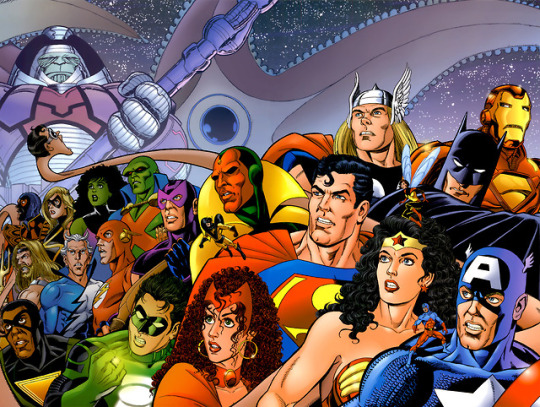
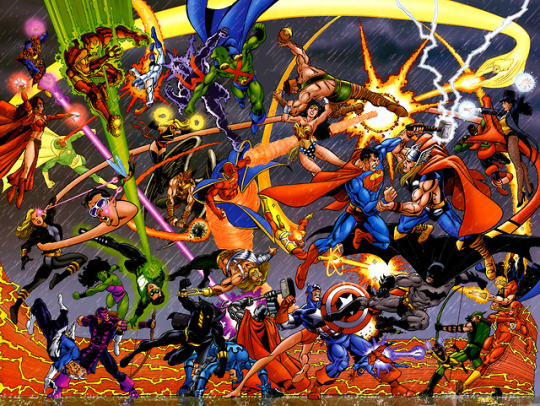
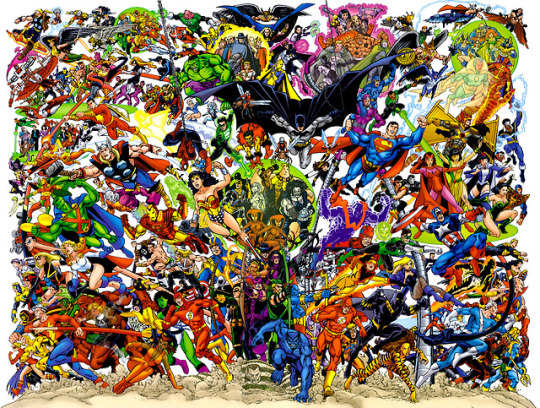
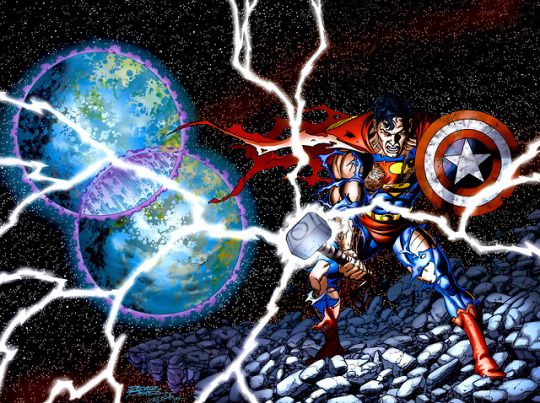
JLA / AVENGERS SEPTEMBER - DECEMBER 2003 BY KURT BUSIEK, GEORGE PEREZ AND TOM SMITH
SYNOPSIS (FROM MARVEL DATABASE)
Krona, an exiled Oan villain from another Universe who has gained the powers of entropy, begins destroying entire universes in his obsession to find out how they are created. The Grandmaster, an alien who is obsessed with games, offers to give Krona the knowledge he seeks but only if he can beat him in a game. The game consists of forcing the Avengers and their heroic counterparts, The Justice League of America, from that Universe's Earth to battle each other in a race to find twelve items of incredible power that have been hidden around their worlds. With help from Metron of the other Universe, the heroes are tricked into participating. Krona is given the side of the Avengers and Grandmaster is given the side of the JLA.

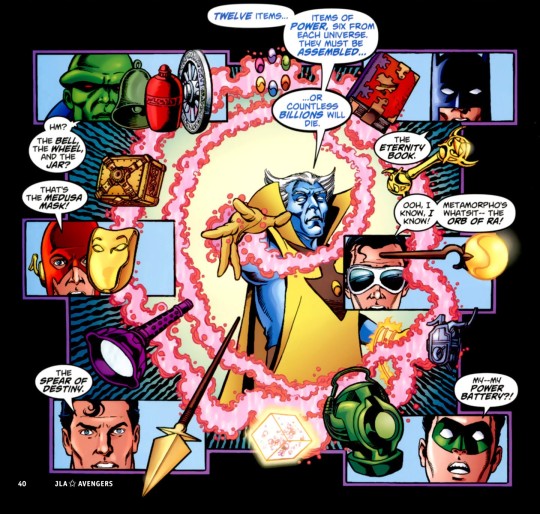
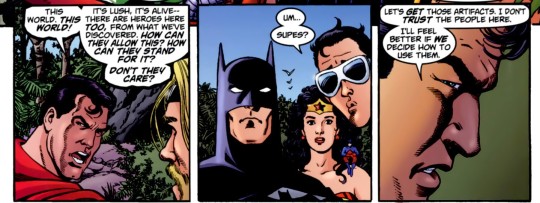

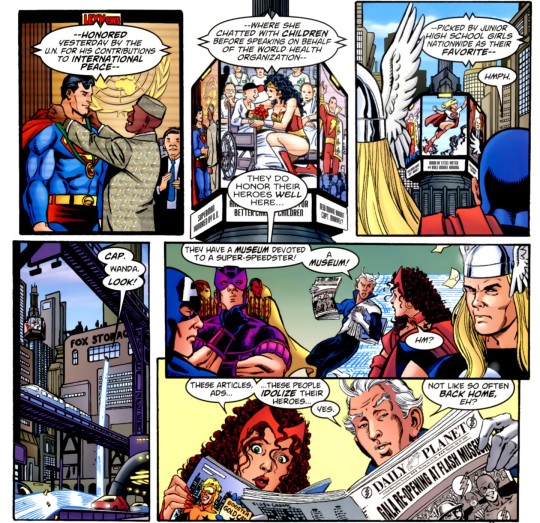
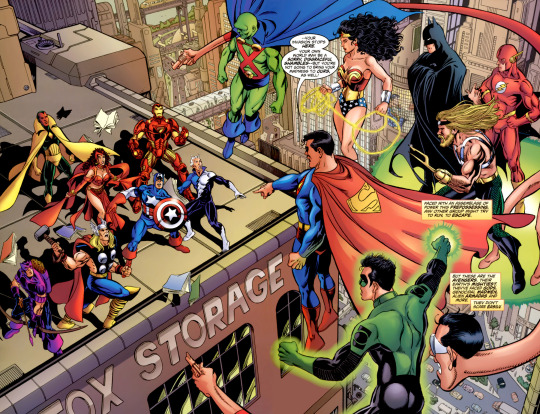

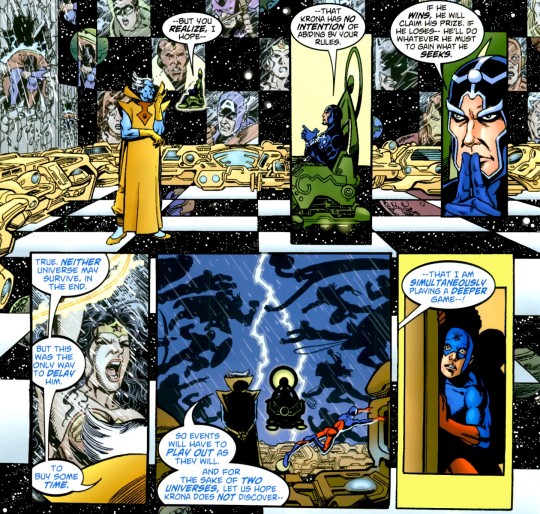
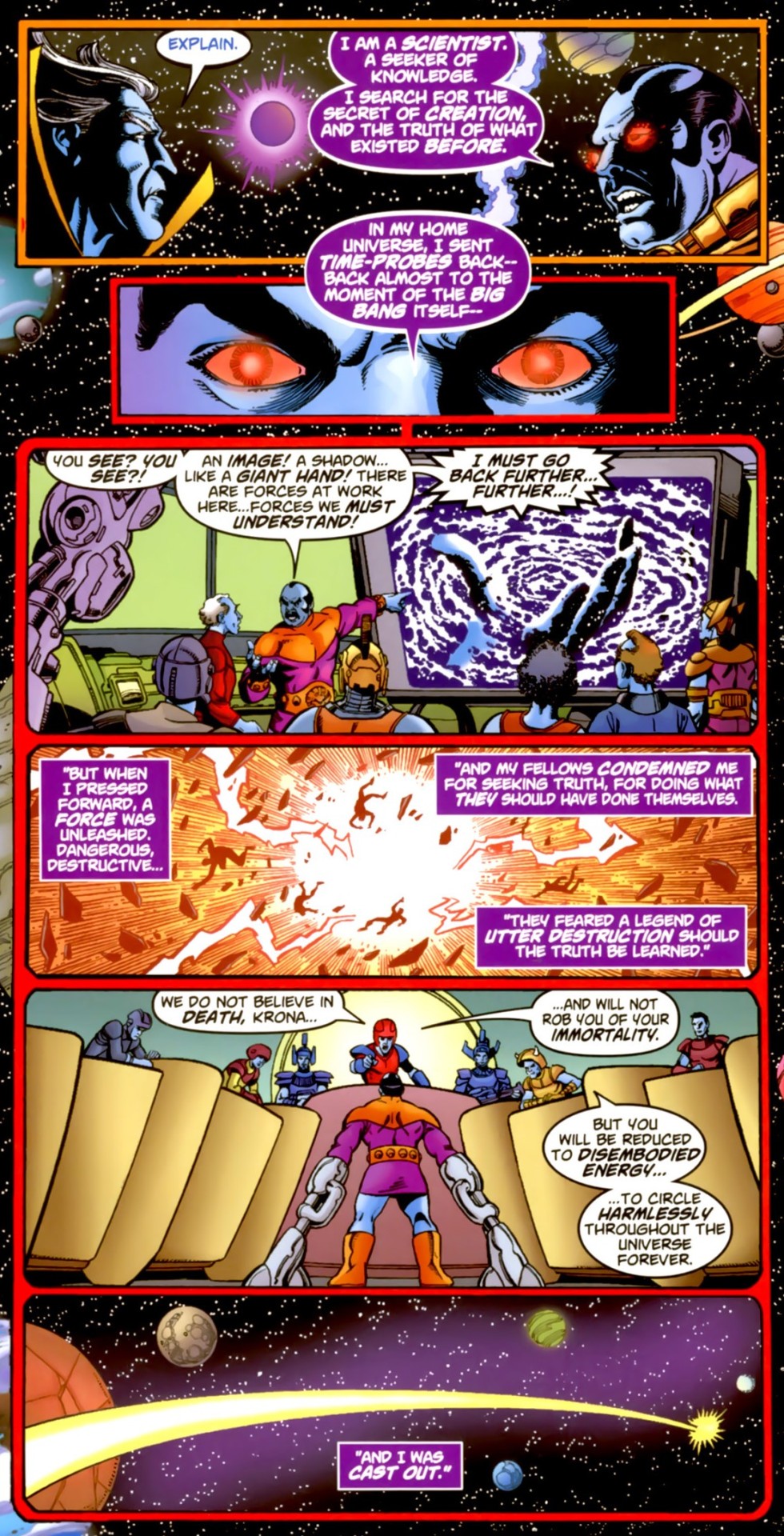
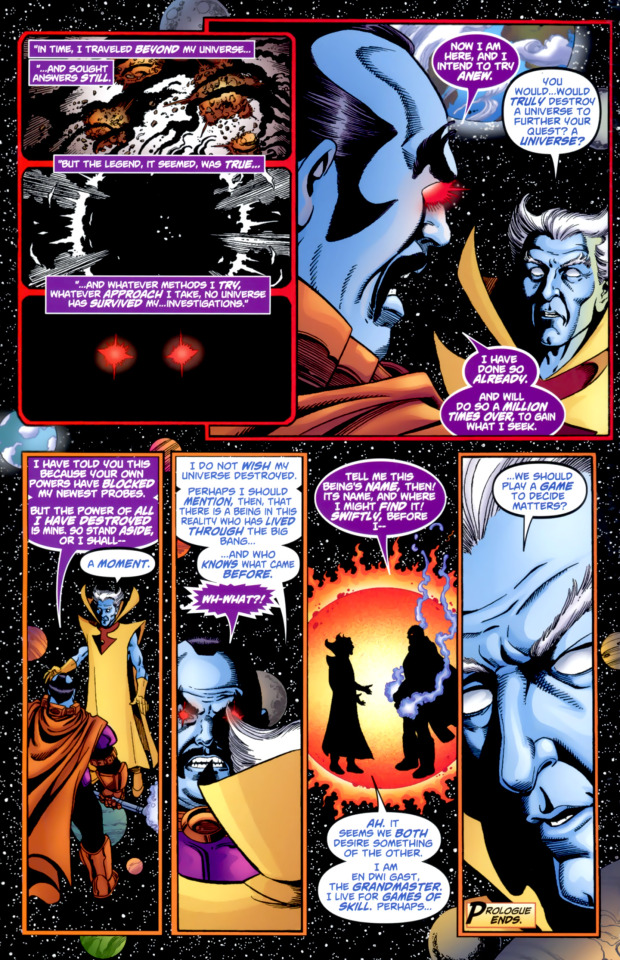

When Batman and Captain America discover this, Captain America allows the game to end with a victory for the JLA, but Krona refuses to accept this and uses his powers to steal the knowledge directly from the Grandmaster's mind. In turn, the Grandmaster uses the power of the twelve artifacts to merge the two universes, trapping Krona at their center. However, this results in a chaotic world, and Krona begins to cause the universes to collapse, since he now knows that universal creation comes from destruction. The Avengers and the League join forces to stop him, aided by many other members from both teams' pasts (brought together by wild changes in time).
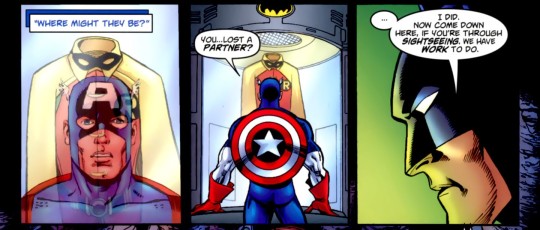


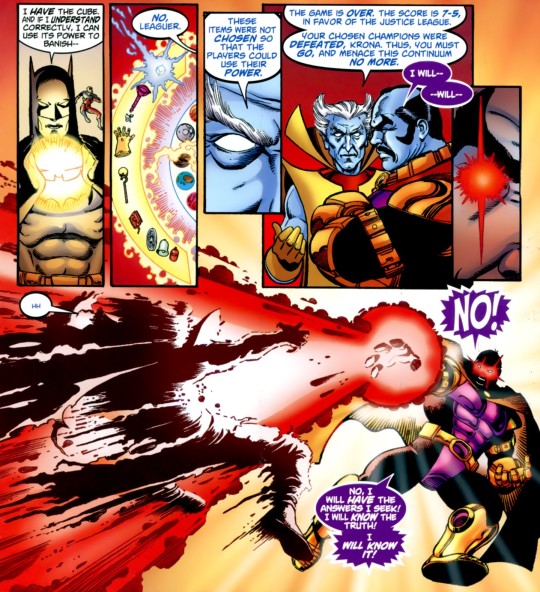
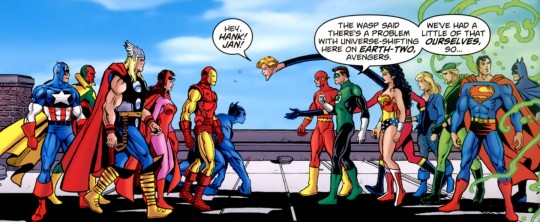
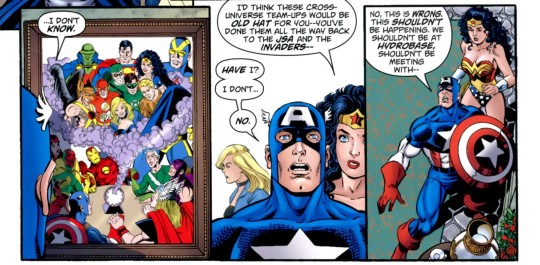
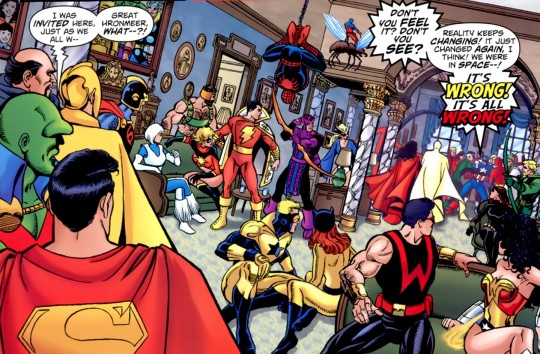
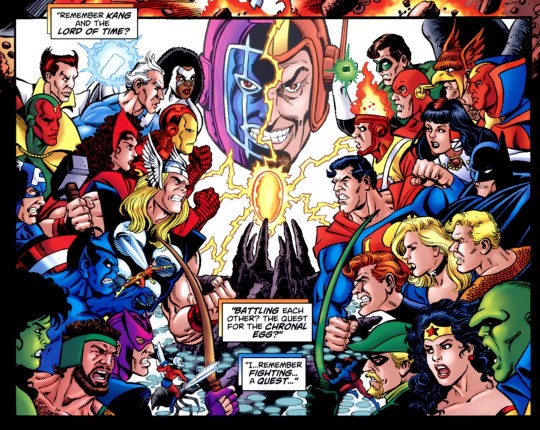
In the end, Krona is turned into a "cosmic egg" from which a universe would be born in a trillion years. The two universes return to normal, with everything that Krona destroyed being recreated as well (this would have consequences for the Anti-Matter Universe, as seen in a further Justice League adventure).
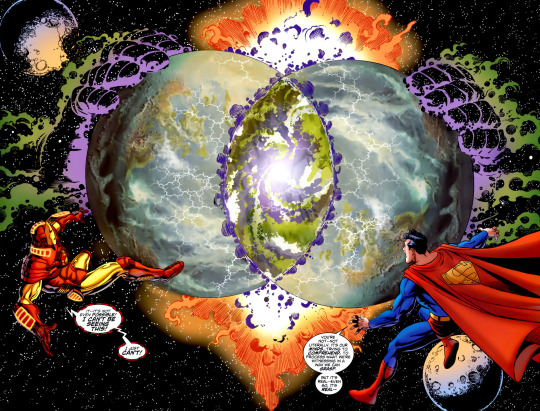

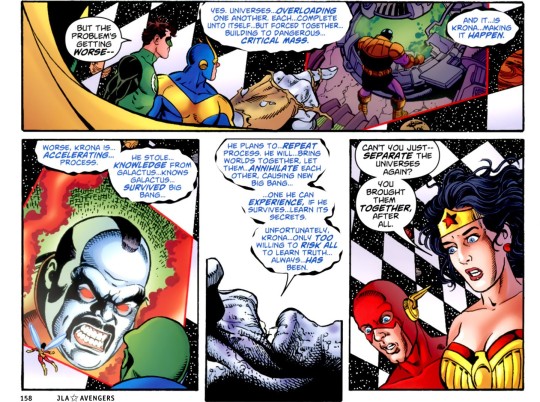
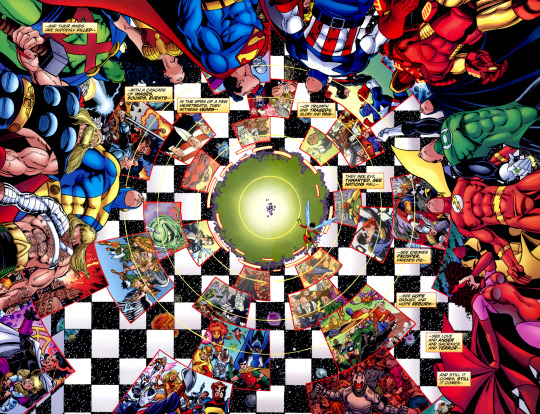
CONTEXT (FROM WIKIPEDIA)
In 1979, DC and Marvel agreed to co-publish a crossover series involving the two teams, to be written by Gerry Conway and drawn by George Pérez. The plot of the original crossover was a time travel story involving Marvel's Kang the Conqueror and DC's Lord of Time. Writer/editor Roy Thomas was hired to script the book, based on Conway's plot, and although work had begun on the series in 1981 (Pérez had penciled 21 pages by mid-1983) and it was scheduled for publication in May 1983, editorial disputes - reportedly instigated by Marvel Editor-In-Chief Jim Shooter - prevented the story from being completed. The failure of the JLA/Avengers book also caused the cancellation of a planned sequel to the 1982 The Uncanny X-Men and The New Teen Titans crossover.
An agreement was reached between the two companies in 2002, with a new story to be written by Kurt Busiek and drawn by George Pérez. In a joint panel at WonderCon 2000, Busiek (then writer of the Avengers title) and Mark Waid (then writer of the JLA title) stated they had nearly come to an agreement to begin the crossover within the regular issues of the respective titles but the two companies could not come to a business arrangement. When the series was approved, however, Waid was unavailable due to an exclusive commitment with company CrossGen, and Busiek became the sole writer on the project. Perez also had an exclusive commitment with CrossGen, but had a clause written into his contract allowing him to do the series if and when it was approved.

INTERVIEW (FROM SYFY)
Kurt Busiek: I don't know if this is actual irony, but it's a coincidence at least, so it's the Alanis Morissette version of irony. One of my last jobs as a fan journalist, when I was working on a news magazine about comics, was to do an article announcing what was going to be the 1984 book. This was back in 1981 or 1982. I didn't know much about what was in it at that time, but over the years as it fell apart, there were interviews that were done about it where everybody kind of shouted at each other.
The problem with the first one was really a matter of personality clash. Dick's style of editing was "let's just get moving and we'll fix it along the way." Dick Giordano, as a long, long time award-winning inker, didn't believe there was any comic book you couldn't fix in the inks. And Jim Shooter was a very intellectually driven writer, who wanted it all in the outline. If it wasn't in the outline, it was wrong. So Dick was like "Yeah okay we have a plot, and maybe bits of it that don't make sense but we'll fix it as we go along" And Jim was like, "no, you can't start until you have an outline that works."
The final tally on work produced on JLA/Avengers '84: one fully plotted issue that may or may not have been approved, 21 pages of penciled artwork, and a litany of memos back and forth between Giordano and Shooter detailing which of their respective editorial teams were not at fault. After management changes at both companies, new crossovers between Marvel and DC characters to began to hit the stands.
Between 1994 and 1999, the companies would collaborate on 11 standalone stories featuring the likes of Spider-Man, Batman, the New Gods, Galactus, Superman, the Silver Surfer, Captain America and dozens more characters from each companies' respective library. They also put out Marvel vs. DC, a four-issue mini-series that was more like a battle royale pitting iconic characters against one another, with the outcomes voted on by gleeful fans.
It took another change in management to get the original JLA/Avengers idea rolling again.
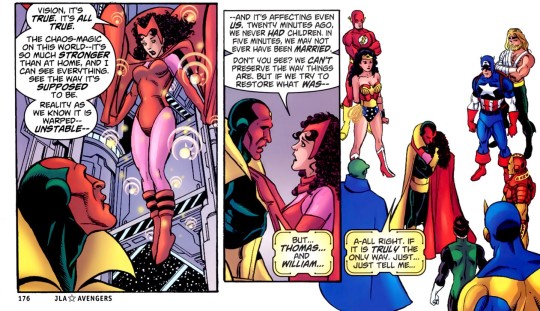
Tom Brevoort: I was intimately involved in getting this crossover to happen. At the time, Joe Quesada had been installed as Marvel's new EIC and he was working through a program he referred to as "unfinished business": creator relationships that had fallen on hard times, projects that had never been completed as a result of some difficulty or another, that sort of thing. And so, at a given point, he asked me why the JLA/Avengers project hadn't happened back in the day. I gave him a rundown, and he said, "Okay, go make it happen."
I checked with our contracts people about the particulars of the overall deal for the Marvel/DC crossovers, and I discovered something: the deal called for each company to produce an equal number of books, but at that moment, DC had done four more than Marvel had. So that gave me some bargaining leverage.
I don't know what the decision-making process was like on DC's end — for Marvel, that was the whole of it. We did all meet once or twice to hash out some of the business aspects, agree upon the length and the creative team, as well as the publishing rights to the collection. That went to DC, as Marvel didn't have a machine in place at that moment to do collections—something else that Joe Q was instrumental in building.
So as the wheels were set in motion to get JLA/Avengers started, the talent currently working on both books were becoming aware this project might suddenly have new life.
Busiek: When things were fine between Marvel and DC, we heard about it and that there might be a possibility. I was writing Avengers while Mark Waid was writing Justice League and we came up with elaborate plans to do a JLA/Avengers #1, and then have the story appear in the next six issues of Avengers and JLA. Then there'd be a finale in JLA/Avengers #2 where we'd write our halves of it and we'd co-write the bookends. Ultimately Marvel and DC didn't want to do that because they didn't want to have any issues of the Avengers that they couldn't reprint because they were subject to a co-publishing deal.
An unlikely player then got involved: an upstart comic book company called CrossGen, which was founded in 1998 by Mark Alessi. Determined to make a huge first splash, they offered exclusive contracts to many of the industry's most talented creative talent. Two of the creators who chose to take Alessi up on his offer were Waid and Pérez.
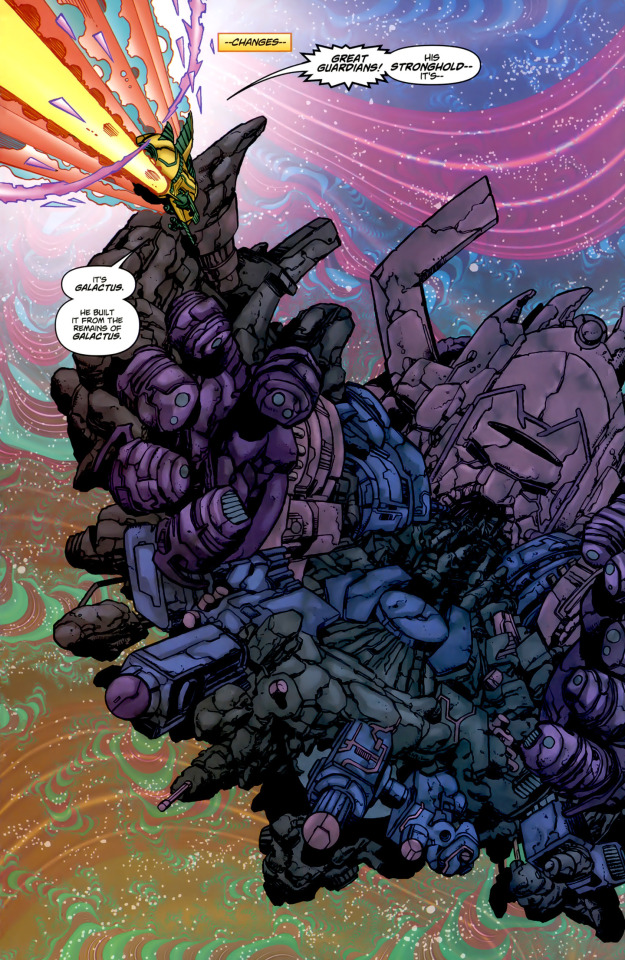
Busiek: I was still on Avengers, while Mark left DC to go to CrossGen. There was no new writer on JLA. Mark was finished, or at least on the way out. I was the only guy left standing and they offered it to me and I thought, well gee, that sounds nice.
Brevoort: We also had to work around George's situation. At the time, he had finished his run on Avengers for me, and joined CrossGen as a staff artist. But he had a clause inserted into his contract that stated that, if an Avengers/JLA project ever happened, that he would be free to do it. So we needed to negotiate a little bit with Mark Alessi in order to work out the timing and make this happen, because the book was going to take George a year and a half to draw, since he wanted to ink it as well, which is a long time to have a key artist off the boards. And this is why we announced the project at the Orlando Megacon, a show which at that time was affiliated with CrossGen — it was their hometown show.
Stephen Wacker: I believe I only found out that it was finalized just a couple days before the 2001 Megacon where it was announced.
Brevoort: George was a no-brainer based on his connection with the original, aborted JLA/Avengers project from 1984. And I think DC wanted to be in the Kurt Busiek business, and saw this as a way to begin to establish a relationship.
The next step was hammering out the logistics of this event.
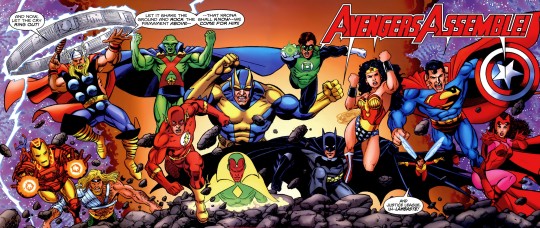
Brevoort: In all honesty, it wasn't too difficult. We had made arrangements to stay down in Florida an extra day following the Megacon announcement, and so myself, Dan Raspler from DC, Kurt and George sat around talking through the project and the story. Kurt already had a bunch of the pieces for what he wanted to do, and we very quickly all agreed that we weren't going to approach this from a company vs company standpoint where we'd be counting character appearances or worrying about who "looked better" or not.
We were just going to build a story that worked for us, like any other story — it just happened to star characters from two separate companies. Thereafter, there was a snowstorm that blanketed New York, and so Kurt and I rented a car and drove for 26 hours straight up the coast to get back to New York, and during that time we had plenty of further weary discussions about the project.
Wacker: We had some lunches which were friendly but the bulk of the work was done in email. And there were thousands. You could probably fill three omnibuses with them!
Busiek: I wanted to do a bigger project. The original idea to do it back in '84 was a 40-page book and I had impressed upon Tom a number of times, let's go bigger than that. Marvel versus DC and other projects that had been done as multi-issue projects. At one point, they came back to me with wanting to do three prestige format comics. I said, let's do four, because there are two publishers and you can't split three books into two publishers.
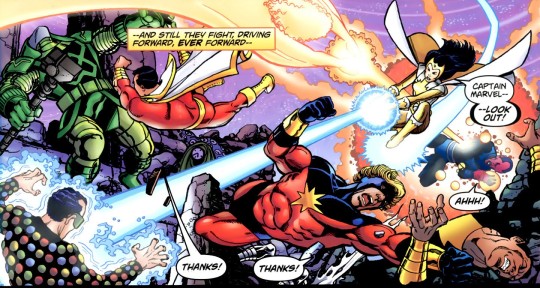
Wacker: I recall there was some worry that this was really just Marvel's Avengers creative team handling something that was supposed to be half DC. On the other hand, Kurt had co-written a Wonder Woman mini as well as a Red Tornado mini that only I bought in 1985, so I was on his team!
Busiek: I came up with the idea of having Marvel issues be called JLA/Avengers and the DC issues Avengers/JLA, because that way nobody seems more important. And more to the point I thought JLA/Avengers had a better rhythm than Avengers/JLA.
They also wanted a more ambitious story than had been done before.
Brevoort: The key idea was to not just do a typical fight between characters as had been done before, but to really delve into what made the Marvel Universe and the DC Universe different — to point out the stuff that each company did differently.
Busiek: I didn't want it to a story that just said, hey, here's the JLA, here's the Avengers. They team up, they fight somebody. They win, nothing happens that isn't on a pure superhero level. I said I want something deeper and that turned out to be exploring the differences between the two universes.
There's a reason why DC characters and Marvel characters don't just cross the dimensional gulfs — other than ownership — and team up all the time. It's because they're different places with different styles and even different physical laws. And I made the point along the way that the DC earth is slightly larger than Marvel earth because it's got more fake countries and fake cities to fit in.
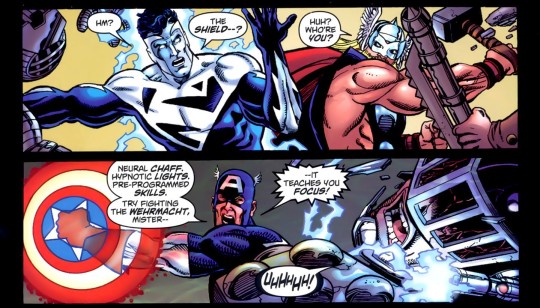
Wacker: I know there was a lot of anger from fans about who could beat who, but I was always a believer that any character could win against any other character given the right set of circumstances.
Busiek: We wanted to get into the idea that, that the Marvel Universe is a place where heroes struggle and the DC Universe is a place where heroes are lionized. Superman is everybody's big brother, and The Flash is the pride of Central City. Even in Gotham city, Batman may be a scary guy, but he's THEIR scary guy. In New York City, Spiderman's a scary guy, but he's just a scary guy. Marvel has a lot more of a sense of the superhuman as dangerous. Whereas with DC, it's traditionally neatly divided into hero and villain.
Brevoort: That idea permeated throughout the plot and the series, including the one sequence that we couldn't make work to our satisfaction in issue #3 wherein we postulated what the Marvel characters would have been like had they been created in the DC Universe and vice versa. That failure led to the situation that broke the story, as it turns out.
While somehow making the heroes work together was crucial, they didn't ignore the villains, either.
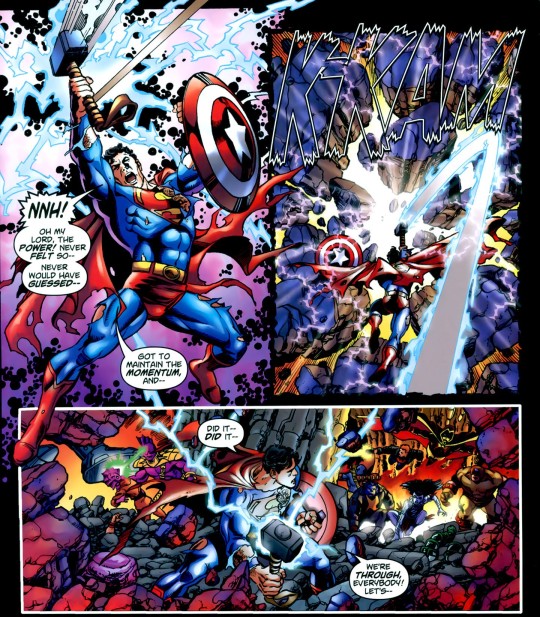
Busiek: Tom and I were talking about what could be done and I had cooked up the idea that we need to involve Krona and the Grandmaster, right from those early discussions. Tom and I said this doesn't need to be exactly balanced at all. If we have Krona vs. Grandmaster and we have Metron involved, we don't need to have another Marvel supervillain involved at the same level just so that everybody gets the same number of seconds of dance montage.
So they had an outline. Now they just needed a story. That story told over four issues ended up being starting with a cosmic scavenger hunt with Krona on one side, and the Grandmaster on the other. The JLA and Avengers wound up being used as the chess pieces in this high stakes quest to gather 12 objects of power from the Marvel and DC universe, including a Green Lantern power battery and the Spear of Destiny from the DCU, and the Cosmic Cube and Infinity gems Marvel.
The story begins with the present-day versions of both teams at the time — Cap, Iron Man, Thor, Quicksilver, Vision, Scarlet Witch, and Hawkeye squaring off against Superman, Batman, Wonder Woman, Green Lantern, Aquaman, the Flash and Plastic Man — but through the course of the four issues would grow to touch on and contrast the full rosters of both squads.
The final issue ends with a knock-down, drag-out fight against Krona for the fate of both universes that is remembered by most (whether fondly or with scorn) for the image of Superman wielding Captain America's shield AND Thor's hammer during the battle. And in the end, Hawkeye (yes that Hawkeye) ends up winning the day for the heroes. Kurt's affinity for the character may have had had "something" to do with that.
It was an amazing four-issue run, but it didn't happen without its share of hiccups, as what goes on the page at times can pale in comparison to what it takes behind the scenes to put these projects together. often due to two completely different (and in DC's case shifting) editorial teams.
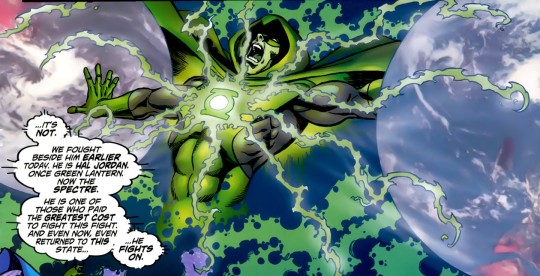
Busiek: I always got the impression that DC was looking over their editors shoulders on JLA/Avengers. That when I sent something to Tom and Dan Raspler for approval, approval came back from Tom 20 minutes later. He said this was fine, let's go. Dan read it. And I got approval back three days later because — they never said this, but I got the impression that it had to go up the chain and had to be seen by, Mike Carlin, by whoever was above him.
We had at least a lot of flexibility on the Marvel side since this was the Avengers creative team putting together the comic. Joe Quesada was not looking over Tom's shoulder. He would say "It's just going to say JLA/Avengers on it? It's going to have George Pérez art? It's gonna sell through the roof? I honestly don't care what Dr. Light does."
The main hiccup seems to have occurred around the story in the third issue.
Busiek: Issue four was difficult to do, no offense to anybody involved and I'm sure they were always all using their best judgment. But, the DC side of the process broke issue three. We had an outline. It had been approved by everybody. Issues three and four were originally intended pick up the merged Earths in 1983, and we see the teams that would have met in the original 1983 crossover. And then as time and reality collapsed and warped, they keep shifting to later versions. We would get to see the different forms that the JLA and the Avengers have taken, with multiple teams and such over the years.
We got told by the DC side of this, by Dan (Raspler) — I don't know how much of that was Dan and I don't know how much of it was people looking over Dan's shoulder — that no, we could not spend all this time in a JLA/Avengers crossover with Hal and Barry as a Green Lantern and the Flash. And the reason was that Hal and Barry were dead. They were never coming back. No one cared about them. It was Wally and Kyle Rayner. So spending too much time on Hal and Barry was just aiming it at the oldsters. And we needed to aim it at the younger fans so we had to pull apart issue three and put it together differently.
That meant that what was supposed to be a structured flow of time moved forward in a chaotic way. There just wasn't any structure anymore. It was just chaotic things as they're happening. And we tried to make as best an emotionally satisfying event out of it.
Brevoort: Mike Carlin — who was then DC's Executive Editor — and I got along very well, and were almost always on the same wavelength, which made coordinating and conceptualizing these crossovers relatively pain-free. Mike came on to edit the end of JLA/Avengers for DC, and that made things even easier. I kind of regret that he didn't come in just a few weeks sooner, as that was the point where the interaction happened that broke the back half of the story in my opinion, and that would almost certainly have been avoided had it been Mike at the helm at that moment.
Busiek: Issue #3 pretty much got reworked in ways that we weren't happy with. And issue #4 was kind of a mess because of that, but people seem to like it. So I guess we did it well enough. But yes, it was a lot of work at the last minute and I think we would've had a better book if we'd stuck with the original outline.
What no one had any regrets over was the work down by George Pérez
Busiek: We had close to 200 pages and we had George. When I started writing Avengers, George was the artist, and I asked do you know which Avengers do you want to use? And he said all of them. When JLA/Avengers comes along I said, well, which characters would you like to focus on? And I knew it was coming: George said "all of them." So everybody up to and including the Yaz showed up at least once.
Brevoort: We were able to schedule the series in such a way that George was able to ink as well as pencil every single page of it. I'm not 100% certain, but I'm pretty sure that it represents the largest body of work that George both penciled and inked himself.
Wacker: Dealing with George was without a doubt the highlight of the project. I couldn't believe my life had progressed in such a way that I now had his phone number! My favorite memory was a voicemail message from George that I kept for years. He was … shall we say very "frustrated" that none of the references for JLA's moon base were consistent. I geeked out at every minute of him yelling at me!
Brevoort: The one fannish thing I did insist on in our earliest story meetings — and it's something that nobody objected to — was that the Flash be the first character to breach the dimensional barrier between the DC Universe and the Marvel Universe, much as he was the first character to travel from Earth-1 to Earth-2. In my office, that sequence was referred to as "Tom's page", and in fact, I did buy the original art for that page from George when he put it up for sale after the event had seen print.
Busiek: George finished the cover to number three that had every JLA member ever and every Avenger and he wrecked his hand. The fourth issue was late because George had had tendonitis from drawing that, which was a huge complicated cover.
Brevoort: At a certain point, we needed to send the original artwork for the cover to issue #3 — the huge piece in which George had drawn every single Avenger and Justice leaguer — back to George. But my intern at the time had misunderstood our instructions and instead sent George back a full-sized Xerox.
I remember coming into the office in the morning and finding a message on my answering machine from George, and I've never before or since experienced him speaking so quickly and so breathlessly. He was afraid that the original art was either lost or destroyed, and he was half out-of-his-mind with concern. Upon looking into things, we worked out what had happened, and were able to calm things down and get it back to him.
Given the size of the superhero business now, with sprawling cinematic and television universes even more prominent to the general public than the comics source material, it would seem unlikely that these two companies would team up again. The fact that they're owned by two multinational conglomerates — Marvel is Disney property, while DC is owned by the freshly minted Time Warner/AT&T — as unlikely as Captain America and Superman becoming North Korean citizens.
Brevoort: Those were really the final days of both companies being "Mom & Pop" shops. Now, with both Marvel and DC being integrated multi-platform companies, the inter-mingling of competing IP is a much more complicated and complex situation, along with the fact that you wind up spending considerable resources on a project for which you only recoup half of the eventual profits (and that you cannot utilize across other lines of business beyond the publishing) make it a lot more difficult to justify. It's hard to justify both the allocation of resources and also the difficulties of navigating the politics between two competing corporate giants. So it's not impossible that it could never happen again, but the factors against it happening are considerable.
It would be nice, though, if we could get JLA/Avengers and the other Marvel/DC crossovers of the past back into print.
Busiek: We got to do JLA/Avengers. I had a lot of fun with it and a lot of people read it. They thought it was cool. So the fact that it didn't stay in print is disappointing to me, but it doesn't outweigh the fact that we got to do it in the first place.
Wacker: At the time Marvel was in the beginning of a cultural reawakening that would climax with the movie and TV studios getting built. DC was just starting to wake up as well and really start taking seriously the need to compete with Marvel.
REVIEW
You can get lost in those pages. So many characters and references (even to the original plot of the series). This is the most ambitious mini-series I can remember right now (Crisis on Infinite Earths did the same with just the DC Universe, but this incorporates everything post-Crisis, plus the Marvel Universe).
It’s just amazing. And it’s not just the art. For a crossover, the Krona story is very advanced, it has more in common with Crisis than, let’s say, Batman/Spider-man.
This is also the last crossover between DC and Marvel. The corporate culture at both companies changed too much to allow another of these events, and most importantly, once Marvel got out of their bankruptcy, they had no reasons to boost DC sales (this was usually the excuse to not do the crossovers, as Marvel has been dominated the market for decades).
I am kind of glad that the 1983 crossover failed. I don’t think it would have been as powerful as this.
There are some problems in the third chapter. And everyone knows that. The issue had to be rewritten and it just stops the pace of the story. You could kind of not read it and you would get the same story (minus some valuable exposition).
If you are going to buy this book, I recommend the one with the companion book, that includes interviews around the failed project, (plus penciled pages for that book), and an exhaustive index of all the characters, page by page.
I give this book a score of 8
#george perez#jla#avengers#justice league of america#jla/avengers#avengers/jla#grandmaster#contest of champions#mcoc#superman#mjolnir#iron man#captain america#batman#dc comics#marvel comics#comics#review#2003#modern age#crossover#thor#infinity gauntlet#darkseid#captain marvel#shazam#wonder woman#hawkeye#green arrow#arrow
3 notes
·
View notes
Text
Time to get back into a diary
when you feel so alone but then realize that the reason why you feel so alone is because you, yourself caused it to happen. The reason why everything falls apart, crumbles into pieces. The reason why you're always alone and why everyone decides to leave you in the end because you, yes you the person who caused this, is so selfish, manipulative, suicidal, over emotional, irrational, impulsive, and has no idea who the fuck the real them is. Social chameleon you are. Whats that you say? It means, you adapt to new people, become someone they can relate to, a new version every time of yourself and eventually you lose track of how many you's there is and then begin to lose yourself trying to figure out who you really are. But you have no idea, because there is no real single, you. It's idea's and images from other people of how they see you. Meet someone new and the person you were yesterday just dramatically changed with a new version to accommodate your new friend.
You create these messes and every single time you sit there absolutely dumb-founded because you never thought it'd get to that point, and it did. You try so hard and in your mind you think you're doing really great, or even at the least better than what you were before, but in actuality you're told that you haven't gotten better and apparently it's actually gotten worse if that's even possible.
You go home, sit on your bed and just stare at the wall thinking what am I supposed to do? In the end, how much more am I supposed to keep falling before I even get a chance to catch myself? You thought you were doing better, small step by step in the positive direction and when you slip up and do a habit you're trying to get rid of, you get told you're only getting worse, this isn't improving. When you are trying so hard to stand up tall after that slip up and feel so ashamed and regretful that it happen, you know that it might happen again because it's hard to stop bad habits cold turkey. Some things can't go cold turkey and often will take time, sometimes a long time, to really be truly rid of. Maybe you thought you just needed some extra time, but those who are doing their best to support your stupid ass are growing tired and their patience is growing thin. People who say they love you should know love is patience and understanding. But when they say you're taking too long, not progressing enough, you should know this by now, you really start wondering, do they actually love me or just here to torture me?
Then you start feeling pressured, anxiety exploding in your chest, feeling like anything you do wrong is just going to make them explode in anger, and just live in complete tension and fear every single fucking moment in your day.
Oh man, what will I fuck up now?
You're so depressed that the things you loved doing are a chore and it takes so much mental effort to even consider doing it. Video games which were something you'd dive into for hours on end, have barely been touched for 10 hours for 6 months. There's over 10 new books you've bought over the recent months and barely put a dent into one of them. Animated shows that you would watch every day are barely being seen over months.
You have a trillion things to spill out on paper but it's so hard to keep focused and to actually put down in writing what all of your trillion thoughts are saying. You're so exhausted after one page of writing and you're disappointed because there is so many things that were supposed to come out today, but you're tired of crying of everything you do wrong to put in writing and you just want to sleep. You just need to escape to your dream world, and hope that world is better than this one, even for just one night. You're thankful for dreams that are so vivid, so life-like that you often confuse both worlds and memories and sometimes don't know what is real and what is fake. When you see things that happened a few days ago in real life, then you know it's real. Like when you tried to commit suicide and see those marks are still there a month later. Oh no, here come the thoughts racing back of what happened, how it felt, all emotions clear as if were happening now.
The worst part of these feelings is that they're so intense. So absolutely intense that it's like comparing fanning yourself with your hand and an airplanes turbines on take off. That's how these emotions and feelings are. There's days where you can be grateful in positive moments when you're laughing or spending time with friends or intimacy but you fucking HATE them, and wish you were numb to the core when your FP is screaming at you that “you're an asshole and that you're never going to change.” -STELLA
Stella – The ashley who has no idea who the fuck she is anymore.
1 note
·
View note
Text
More Writing YAY
This was originally a prompt from @writing-prompt-s, but I can’t find it soo uh. Yeah. Lol, enjoy!
I was sick of it. Everyone gets tired of filing and paying their taxes at some point- it’s just how it works. But I was especially done with paying for other people’s goods and services. I wanted a break, only for the rest of my life.
Us adults don’t think about it too often, but a world where we don’t have to panic over whether some useless tax is overdue or not sounds like a safe haven- a paradise, even. We don’t get the opportunity to think about it, because we know it will never become a reality.
So, I decided to be one out of a million and try to do something about it. Our government is extremely complicated- so doing something so mundane as sending a letter would be turned into a big ordeal- but I had to at least try.
I did some research, and it turned out that tax breaks were a real thing. It basically meant that the government would select people they collectively thought deserved to carry less weight on their shoulders and give them a, well, break from taxes. Not entirely, though- those few people still had to pay up, but a significantly less amount.
I knew that getting a tax break would pretty much never happen to me, so I decided to write a completely bogus letter to the government themselves to see if they would even bother to read it, or if they were feeling especially generous, respond to it.
Entitled to the Entire Body of the U.S Government, Hello. You probably don’t know me, but my name is Laquisha.
I know the people reading this are wondering why I used the name Laquisha for this, and to that I respond with: why the hell wouldn’t I? On with the letter.
It’s not a very popular name. Anyways, I’m writing this letter to complain. To every single one of you. About taxes, to be specific.
First of all: who the fuck thought those were a good idea? Seriously? Every day I wake up thinking- ‘Hey, you know what would be great right now? If I could go and basically waste all of my money on goods and services. For other people though, not myself. Because why would I want to live in a house with a refrigerator and a bed when I could be outside, on the pavement. In a cardboard box with 19-day-old clothing still on my back. I would totally go for something like that!’
And I swear to God if one of the people reading this brings up the fact that the government 'desperately needs that extra money’ I will drive myself up to Washington D.C (or wherever the hell the government is based, for all I know it could be in Montana) and tell you all to go fuck yourselves. Or to screw yourselves, in case the language was a bit too vulgar for you cowards.
You guys get tax revenue from like, every state. And when you count (on your fingers) how many that is, you get 50. 50! And the population density of this entire country is not a low number, I assure you. And because you guys decided the tax rate needed to be extremely high to the point where some people struggle to even survive because of it, you get a LOT of money from the country as a whole.
Yeah, yeah, you can say that the country is in a completely stupid amount of debt right now- like, trillions of dollars debt- but I would answer that by simply saying to stop getting involved in every. Goddamn. War. Or even small conflict. A lot of the time it’s just a waste of money, and if you had half of a brain you would realize that it isn’t worth spending MORE money on. The United States isn’t the fucking 'almighty police’ country. In fact, it’s one of the youngest countries out there. So please stop acting like you know EVERYTHING THERE IS TO KNOW ABOUT THIS SHIT, because I promise you, you don’t.
Basically, what I’m saying is to lower the goddamn tax rate or I will actually murder someone. Everyone involved in the government agency is a complete idiot. Please stop acting like a child that knows everything about the world, when in reality, that child is 2 years old and just talking up to the other kids so that they seem smart.
It is not my fault this country is in such large debt, so don’t take it out on me. Sincerely, Laquisha.
I ended the letter pretty nicely, I would say. I was actually quite proud of how salty I managed to be to the people who are in charge of making sure our country doesn’t fall into anarchy. I put the letter in an envelope, looked up the right address to send it to, and put it in the mailbox.
The next day, I woke up to the most bizarre scenario. Imagine you have just gone to another country (or state, even) and you have literally no idea where the fuck anything is, so you end up asking for help. That feeling of being lost is terrifying, because for once you don’t know where you are or what is happening.
Now multiply that feeling by one million and- bingo! That’s basically my entire standpoint.
I’m in a bed, but it isn’t my own. And believe me when I say that, because I know when I’m in a bed that isn’t mine. My bed is quite the rare find, if you know what I mean.
I quickly got up and tried to look at my surroundings, but all I saw was white. I decided to just sit down and wait it out to see if anyone would come by. I wasn’t about to go walking on (literal) sunshine, who do you think I am? A Gryffindor?
Yes, I’ve read Harry Potter. Don’t judge me for that reference.
As I was waiting for what felt like a century, I heard what almost sounded like a faint shouting. But it wasn’t just one person shouting, it was multiple. It sounded like at least 600 people were yelling for no apparent reason. I brushed it off. If I was going to be trapped in this wacky version of Hell forever, I wasn’t gonna take the chance of walking to see what the commotion was all about.
But I couldn’t keep my cool when someone walked in. Actually, I wouldn’t even call it walking- more like phasing into existence right in front of me.
I couldn’t help it: I screamed. And don’t you tell me that I’m a wimp for that either, because I know some of you would pee your pants if you were in my current situation.
“WHAT. THE. F-”
“I’m sorry we had to bring you in like this, Mr… ah- what was it again?” I didn’t get the time to finish cursing, and the person (?) in front of me quickly checked something in their arms. It looked like a clipboard, but for all I knew, it could’ve been some kind of death weapon that would incinerate me if I so much as opened my mouth.
“Aha! Mr. Reyes, that’s it.” So it was a clipboard.
“Yeah, heh, that’s me. Hey, quick question?”
“Yes?” the figure responded.
“Who the hell are you, what am I doing here, where is here, how the actual fuck do you know my last name, what’s going on-”
“I see you’re quite feisty,” they said. I’m calling this thing a 'they’ because I don’t know if it goes by human gender stereotypes or not and I wasn’t about to be that guy. So.
“To sum this up quickly- that letter you wrote has spiraled out of control. The entire country has read it- and before you ask the inevitable question of how, it was shown on the news- and they are praising you for it.”
“Wait, back up.” I decided to throw all caution to the wind; what did I have to lose at this point, right? “You’re saying that pretty much everyone in the United States read my letter and thinks that I should be praised for it?”
“Well, to put it simply- yes,” they told me. “That shouting you hear is millions of people gathered to see you. And to answer your question: they want to see you because they have realized that everything you stated in your letter was complete fact, even if it was a bit, ah, harsh.”
“And you expect me to go along with this?” I exclaimed. Seriously, Wednesday was turning out to be a lot more eventful than I had planned.
“Yes, I am,” they said firmly. “You are their leader now. You are the only one they trust at this point. Apart from each other I suppose- but even then that trust is very little in it’s accountability.”
"Um, okay Princess Leia? I’m sorry, but I’m not Obi Wan Kenobi- I’m not your only hope. Go find someone else to lead your wreck of a country.”
They didn’t look very pleased with what I had said, but I didn’t give a shit. I wanted to go home. I didn’t care about all of this one bit.
“I can’t let you do that.”
“Excuse me?” I said, outraged at this, this thing’s audacity. “You transport me to some random white room in the middle of who-knows-where, tell me that millions of people read my letter- which was a joke, by the way- and want to worship me as if I’m some sort of god, and you want me to just shut my mouth and go along with it? I don’t even know who- or what- you are, but you’re crazy.”
They sighed. “Look, I do not expect you to understand, but they need you. Do you want your country to fall into complete and utter ruin?”
“I guess not,” I mumbled.
“Then suck it up and go out there. Be the leader they all think you are.”
I was still really skeptical, and for the next few days I would be really, really frustrated and confused and homesick. Like I said: Wednesday was wild. But after a while- and I mean a while- I got used to it. Really, running the country isn’t that hard when you think about it. When it comes down to it, all you need is a brain and two eyes and you’re set.
I wasn’t happy, not at all, but whatever. At least I was doing a better job than whatever we used to call a government. Which, by the way, have I mentioned that they are- were, my bad- complete shit? No? Well, they were complete shit.
#lmao#I'm not sorry government#I called you out on some of your shit#I'm 14#I mean#its not really like that#i know#im just using basic facts i learned in elementary/middle school to roast these people#its not really roasting if you take into account that im in 9th grade but#who cares!#not me!#i do actually#that was a lie#can you tell that im not 100% confident with that letter i wrote?#i mean dont get me wrong#i LOVE the amount of salt in that thing#i just#eh#whatever#thanks for reading this train wreck!#i feel weird putting this many tags#isnt that a thing people do on tumblr?#ah screw it#no one reads these anyway#i can say whatever i want here and no one would know or care
1 note
·
View note
Text
3 experts explain our new tax code
As the tax filing deadline nears, Americans continue to navigate tax season with curiosity and caution as they find how the Trump administration’s 2017 tax legislation personally affects them.
Democrats criticized the legislation, originally known as the Tax Cuts and Jobs Act of 2017, but officially called An Act to Provide for Reconciliation Pursuant to Titles II and V of the Concurrent Resolution on the Budget for Fiscal Year 2018, but Republicans defended the law as a necessary overhaul to previous tax laws and a means to provide economic relief for the middle class.
The dueling partisan narratives left many taxpayers with a murky understanding of the law’s impact.
To gain a better grasp on the intricacies of the 2017 Act, professors David Kamin, Lily Batchelder, and Daniel Shaviro—tax law experts from the New York University School of Law—cowrote a paper analyzing the sweeping legislation which appears in the Minnesota Law Review.
According to the authors, “Many of the new changes fundamentally undermine the integrity of the tax code and allow well-advised taxpayers to game the new rules through strategic planning.”
Here, the authors describe how some may take advantage of the new system, and how changes to the tax laws may affect the US economy.
‘Cracking and packing’
David Kamin: One of the largest tax cuts in the legislation goes to “pass-through” businesses—where income is taxed at the level of the owner rather than the business. But, to be eligible for this tax cut, owners need to meet certain very complex criteria.
For those with higher incomes, this includes being in the “right” line of business. That means being an architect (eligible) and not a lawyer (not eligible). Selling skincare products (eligible) but not being a dermatologist (not eligible). The formalistic and largely arbitrary lines then allow for much gaming, including what we—borrowing from the election law context—call “cracking and packing,” pulling apart and combining businesses.
For instance, a dermatologist office might “crack” apart a skincare products business run out of the same office, share overhead expenses, and then try to assign as much of those overhead expenses as possible to the dermatology practice to maximize profits eligible for the deduction. Possibly abusive? Yes, but very hard for the IRS to catch.
Lily Batchelder: The bill creates large incentives for the wealthy to convert their labor income into business income. This was already an issue in the tax code because of the carried interest loophole and loopholes in the payroll tax. But the bill makes a bad situation much, much worse.
If a wealthy individual hires an elite tax advisor to make their labor income look like pass-through business income, they can cut their marginal tax rate by more than 7 percentage points. And if they don’t need to spend the income anytime soon and treat it as corporate income, they can cut their tax rate by 20 percentage points.
Theoretically, middle class families could engage in the same games but they are much less likely to do so for at least three reasons. First, middle class families would receive much smaller tax benefits from such gaming and in many cases, none. Second, they often have little leverage over their employers to restructure their compensation and, even if they did, probably would have to give up all of their employee benefits in exchange. This includes their health insurance, 401(k), and disability insurance. Last, they are less likely to be able to afford a tax advisor with the expertise to structure this kind of arrangement in the first place!
Gaming the system
Daniel Shaviro: One of the many disappointing aspects of the 2017 act was its failure to address the opportunities for sheltering labor income from tax at full individual rates, through use of the corporate tax. Pre-2017, the top corporate rate was far closer to the top individual rate than it is post-2017. The main rationale for the corporate rate reduction pertained to global tax competition for scarce capital. This has no bearing on the case where the owner-employee of a corporation pays herself far less than the market value of her work.
For example, suppose I create a wildly successful new start-up and pay myself zero salary, despite my becoming, in net worth terms, a billionaire via the stock appreciation. The income that my efforts yield will show up in the corporate tax base, and be taxed at only 21 percent. True, I would face a second level of tax on paying myself dividends or selling my stock, but even this would be at a reduced rate. And what’s more, I may not need to make such payments if I am sufficiently financially liquid, e.g., by reason of borrowing against the value of the stock.
Opinions in the “biz” differ on how frequently taxpayers will find it worthwhile to do this, given the difficulty of extracting funds from one’s company tax-free. What is plain, however, is that Congress in 2017 deliberately did nothing to prevent this from happening. Indeed, the final version of the 2017 Act reduced the efficacy of a provision in the House bill that would have slightly addressed the problem by setting the tax rate for “personal service corporations” (PSCs) at 25 percent rather than just 21 percent. In the final act that rate is just 21 percent, like the general corporate rate, causing the PSC rules to be close to meaningless as a defense against using corporations as a tax shelter for labor income.
Shaviro: In the international realm, the 2017 Act may actually have improved the law marginally. At a minimum, it created a new regime that could be tweaked by future Congresses to yield a better system than the previous one. However, the main new international rules that it added to the code unnecessarily created multiple opportunities for game-playing. Just to give some quick examples without getting too deep into the weeds:
The foreign-derived intangible income (FDII) rules, which provide a special deduction for exports by companies, such as Apple and Facebook, that have valuable intellectual property, create incentives for “round-tripping” goods—e.g., selling them to a foreign taxpayer, then buying them back with just enough bells and whistles to prevent the entire transaction from being disregarded.
Both FDII and the global intangible low-taxed income (GILTI) rules can create incentives to locate business assets abroad rather than at home.
The base erosion anti-avoidance tax (BEAT) can be gamed through such means as restructuring supply chains so one is purchasing sale items for customers from one’s foreign affiliates. The BEAT can also be gamed by adding lots of extra deductions (offset by lots of extra income so the sum total is a wash), so that so-called “base erosion tax benefits” will fall below an arbitrary “floor” (as a percentage of total deductions) that the BEAT imposes for no discernible reason.
Violating the WTO treaty?
Shaviro: The FDII rules almost certainly violate the World Tax Organization treaty, of which the US is a signatory. They are expressly an export subsidy, and the WTO makes export subsidies illegal. If other treaty signatories challenge the FDII rules, there is a very high probability that they’ll be held illegal, with the consequence that peer countries will be authorized to respond with targeted provisions of their own.
In the last 30 or so years, the US has enacted illegal export subsidy rules on three separate occasions. Each time the rule was held violative and the US backed down. Why do this again? I think the main answer was cynicism, but ironically the prospect of an overturn makes the US companies that wanted favorable tax treatment more leery than they would otherwise have been of setting up complex structures to take maximum advantage of the FDII rules.
‘An array of mistakes’
Kamin: The legislation was written at an extremely rapid clip, leaving an array of mistakes—some minor and some large. An early one to emerge was the “grain glitch.” In attempting to apply the pass-through deduction to businesses organized as cooperatives, especially prevalent in agriculture, legislators wrote in an even larger loophole by accident. Effectively, farmers selling to these cooperatives (think Ocean Spray cranberries) could potentially entirely wipe out their tax liability because of the glitch.
This one was large enough—and was causing sufficient chaos in the agricultural sector—that it was fixed. But most haven’t been. So, take another: one of the largest revenue raisers in the legislation was limiting the deductibility of state and local taxes for individuals to $10,000. However, the letter of the law seems to fail to apply that to another form of cooperative, a housing cooperative.
So, owners of pricey cooperatives in NYC may be able to deduct their property taxes without limit; by contrast, owners of traditional condominiums and houses will not. And the list could go on.
Major takeaways
Batchelder: The bill is heavily tilted towards the wealthy. According to the official Congressional budget scorekeepers, this year the average millionaire will get a tax cut of more than $27,000 on their personal tax return, compared to a tax cut of $431 for an average middle-class family earning $40,000 to $50,000. Even as a share of their after-tax income, the tax cut for the average millionaire is three times as large.
It is also a very costly bill. The Congressional Budget Office estimates that it will increase our national debt by $1.9 trillion by 2028, even after including its effects on the economy. These large tax cuts will eventually have to be paid for. If Congress pays for them by raising revenues in proportion to income, the vast majority of middle class and low-income families will end up worse off. These families will be hit even harder if the bill is paid for by cuts to programs like Social Security, Medicare, and Medicaid.
Shaviro: It’s often says that tax legislation should be judged by four main criteria: fairness, efficiency, complexity, and revenue adequacy. The 2017 Act, despite having good particular rules here and there, egregiously failed on all four counts.
It was an act of class warfare benefiting those at the top relative to everyone else, for the most part it reduced economic efficiency by creating perverse incentives and arbitrary distinctions between different activities, it made tax planning more complicated for those who can afford sophisticated tax advice, and it will probably lose on the order of $2 trillion of net revenue over 10 years, even if all supposedly expiring provisions are actually allowed to expire.
It was also the sloppiest, most poorly drafted tax legislation that I have ever seen, despite all the talent and effort deployed by hard-pressed staffers, because the process was so secretive and rushed.
Source: New York University
The post 3 experts explain our new tax code appeared first on Futurity.
3 experts explain our new tax code published first on https://triviaqaweb.weebly.com/
0 notes
Text
Voice Marketing Tactics: There's Only 100k Searches a Month Up For Grabs Anyway
I was recently preparing a presentation and came across a presentation I gave to a small meetup in London in 2013. While there were only 100 or so people in the live audience that day, the presentation has now probably been seen by a hundred thousand people - between Slideshare, a video of a webinar version, and the blog post I wrote about it at the time. When I stumbled back across it, I found it interesting to look back on because it made a bunch of predictions about the next 10 years and now, in 2018, we are halfway through those 10 years.
I was struck by how time has flown and I thought it would be interesting to do a midway-point review of what I was thinking in 2013. I also thought I could use some of the information it gives us about the pace of technology change and user behaviour change to attempt to understand current trends better - particularly around voice interfaces and voice search.
Preview of the punchline: voice isn’t as disruptive as many seem to think
I’m going to run through my predictions and how I think they’re coming along, but I also wanted to give you a preview of where my argument is going. Ultimately, while I think that voice recognition technology has become incredibly good at recognising words and sentences, there are a variety of things that will prevent it quickly cannibalising the rest of search in the short term. This is true of voice interaction generally in my opinion, but is especially true in search where I believe voice is mainly incremental (and isn’t even responsible for anything like all the incremental query growth).
The bulk of the general argument is made very well by Ben Evans in his article voice and the uncanny valley of AI (though these response and rebuttal articles are worth a read too).
I particularly loved the simple way of describing availability and appropriateness as two big issues for voice that I came across in this intercom article: what voice UI is good for (and what it isn’t) credited to Bill Buxton where he talks about what he calls “placeonas”:
I’m not sure about the “placeona” language (a placeona being an adaptation of a persona that focuses on location changing your preferences or behaviour). For reasons that will not surprise regular readers, I distilled it into a couple of 2x2s:
How do we want to consume information?
How do we want to enter information?
In my view, the constraints that voice isn’t always a convenient input, and speech isn’t always a great output place a natural ceiling on the usefulness of voice search - even beyond the issues Evans identified - and they are heightened for what I’m calling real searches. My view is that the majority (if not the vast majority) of what are currently being called “voice searches” in the stats aren’t much like what search marketers think of as searches. When Sundar said in 2016 that 20% of mobile searches in the Google app and on Android were voice searches, my bet is that 75%+ of those were incremental and not “real” searches. They were things you couldn’t do via “search” before and that are naturally done by voice - such as “OK Google, set a timer for 20 minutes”. The interesting thing about these “searches” and the reason I’m classifying them differently is that they are utterly uncommercial. Not only are you never going to “rank” for them, there is literally no intent to discover any kind of information or learn anything at all. They’re only really called searches because you’re doing them with / through Google.
The pace of change: revisiting some old predictions
Before I finish making those arguments, let’s look back at the presentation I opened with. I started by putting my 10-year predictions into context by looking back 10 years (to 2003 - this was 2013, remember).
The 10 years before 2013
I reminded myself and the audience that in 2003 we were on the cusp of:
Doing email on our phones (one of the most iconic BlackBerry handsets was released in 2003)
Having broadband (13% of Americans, growing +50% YoY)
Video everywhere (we had Skype, but no YouTube yet)
Scoring my 10-year predictions from 2013 halfway through
Now, I put this initial presentation together for a relatively small meet-up, so I didn’t turn them into completely quantitative and falsifiable projections - though if anyone thinks I’m substantially wrong, I’m still up for hashing out more quantifiable versions of them for the next five years. In that context, here are my main predictions for 2023. We’re now halfway there. How do you think I’m doing?
I said that in 2023 we will:
Still be doing email on our phone
Still be using keyboards
Still be reading text
I’m feeling pretty good about those three. Despite the growth of new input technologies, the growth of video, and the convenience of hardware like airpods making it easier and easier to listen to bits of audio in more places, it doesn’t seem likely to me that any of these are going anywhere.
Pay for more [digital] things
I mean. This was kinda cheating. Hard to imagine it going the other way. But the growth of everything from Netflix to the New York Times has continued apace.
I’m not 100% sure what the end-game looks like for media subscriptions. I feel that there has to be some bundling on the horizon somewhere, as I would definitely pay something for a subscription to my second, third, and fourth preference news sources, but there is no good way to do this right now where it’s a primary subscription or nothing.
Dumb pipes continue acting dumb
I think that the whole net neutrality issue (interesting take) is pretty good evidence of the continuing ambitions (and, so far, failures) of the “pipes” of the internet to be much more. Having said that, I didn’t get into anything nearly granular enough to count as a falsifiable prediction.
Last mile no longer the issue - getting fibre to the exchange is the challenge
I think this is probably the biggest miss. Although there are some core network issues, home and mobile connection speeds have generally continued to improve, and where they haven’t, the problem actually does still lie in the last mile. I suspect that as we move through the next five years to 2023, we will see a continuing divide with speeds continuing to increase (and not being a blocker to advanced new services like 4K streaming) in urban / wealthy / dense enough areas, while rural and poorer areas will continue to lag. In the UK, the smaller size and higher density means that we are already seeing 4G mobile technology cover some areas that don’t have great wired broadband. This trend will no doubt continue, but the huge size and scale of the US means that there will continue to be some unique challenges there.
Watch practically no scheduled TV apart from some news, sports and actual live events
This was a bold one. I may have forgotten my own lesson about how fast (read: slowly) consumer habits change. In the accompanying blog post, I wrote:
“I am much less excited by an internet-connected fridge (a supposed benefit of the internet since the late ‘90s) than I am by instant-on, wireless display streaming (see for example AppleTV AirPlay mirroring) making it as easy to stick something on the TV via the web as via terrestrial / cable TV channels.”
This prediction was part of a broader hypothesis I developed and refined in 2013-2014 around the future of TV advertising. The key prediction of that was that $14-25bn /yr of TV ad spend will move out of TV in the US in the next 5 years. We’re about to see what the 2018 upfronts look like, but we’ve already seen a ~$6bn drop. It’ll be interesting to see what 2019 holds and then come back to this in 2023.
Have converged capabilities between mobiles and laptops - what I called “everything, everywhere”
That last one was possibly the most granular of the predictions - I envisaged specific enhancements to our mobile devices:
Faster than 2013 laptops
In fact, the latest iPhones might be faster than 2018 laptops
Easier to purchase on than laptops by being more personal
This is certainly an area where we have seen huge innovation with more to come
And specific ways that laptop-like devices would become more like 2013 mobiles, with:
Touch screens
App stores
The ability to turn on instantly
The majority of my predictions were directional and not that controversial, but the point I was seeking to make with the first few was that technology and usage generally changes a little slower than we anticipate. I think this is particularly true in voice, especially when it comes to search, and spectacularly true when it comes to commercially-interesting searches (including true informational searches).
What does all this tell us about voice “search”
At a high level, the same arguments I made in 2013 about the suitability of the different kinds of input and output apply to put some kind of cap or ceiling on the ultimate percentage of queries that will eventually shift to voice. Along with that, the experience of what things changed and what stayed the same 2003-2013 and again 2013-2018 remind us that certain kinds of behaviour always change more slowly than we might imagine they will.
All of that combines to remind us that even in the bullish predictions for voice search growth, most will be incremental and so little of it is to the detriment of existing search marketing channels (I wrote more about this in my piece the next trillion searches).
So how many voice searches might there be? And how many are actually real searches (rather than voice controls)? Of those, how many are in any way competitive or commercial? And of those, how many give a significantly different result to the closest-equivalent text search, and hence need any kind of different marketing approach?
A bit of Fermi estimation
Google talked about 20% of mobile searches being voice in 2016. Let’s assume that’s up 50% since then. There are then another fraction of that which will be voice searches on other devices (smart speakers, watches?, laptops).
To make it concrete, let’s assume we have a trillion desktop searches / year and a trillion mobile non-voice searches / year to put very rough numbers against the argument. Then I believe (see next trillion searches) that the new searches will mainly not cannibalise these (and to the extent they do, there will be natural growth in the underlying search volume). So then, taking the conservative assumption of no other growth, we get to something like the following annual search volume:
1 trillion desktop
1 trillion mobile non-voice
300 million mobile voice
300 million voice non-mobile
Still to come: 400 million (the rest of the “next trillion”): unfulfilled search demand - queries you can’t do yet. Image searches. New devices. New kinds of searches. Some fraction of these will be voice too.
So - 600 million voice “searches”.
After reading a range of sources, and building some estimation models, I think that total voice “search” volume breaks down roughly as:
50% (300 million / year): control actions
[set a timer]
[remind me]
[play <song>]
[add <product> to shopping list]
20% (120 million / year): informational repeated queries with no new discovery (i.e. you want it to do the same thing it did yesterday)
[today’s weather]
[traffic on my commute]
5-10% (30-60 million / year): personal searches of your own library / curated list
[listen to <podcast>]
[news headlines] (from previously set up list of sources)
20-25% (120-150 million / year): “real” searches - breaking down as
1-2% unanswerable
10% text snippets
5% other answers (local business name, list of facts, etc)
5% (where screen present) regular search results equivalent to similar typed search
Unfortunately, there is little “keyword” data for voice to validate this estimation. We simply don’t know how often people perform which different kinds of queries and controls. Most of the research (example 1, example 2) has focused on questions such as “which of the following activities do you use voice search / control for?” or “what tasks do you perform on your smart speaker?” (neither of which capture frequency). While there is some clever estimation you can do with regular keyword research tools, there is little in the way of benchmarking.
The closest I have found is comScore research that talks about “top use cases”:

If we interpret this as capturing frequency (which isn’t clear from the presentation) we can categorise it the same way I did above:

And then sum it to get ratios that fall roughly within my ranges:
Control: 51%
Informational: 23%
Personal: 6%
Search: 19%
It’s those 4. c & d that provide a marketing opportunity equivalent to most typed searches (and of course, just like on desktop, many of those are uncompetitive for various reasons - because they are branded, navigational, or have only one obvious “right” answer). But even with those included, we’re looking at global search volume of the order of 12-15 million queries / year.
Still interesting, you might think. But then strip out the queries it’s impossible to compete for, and look at the remaining set: what % of those return either the top organic result, a regular search result page (where a screen is present), or a version of the same featured snippet that appears for a typed search? 80%? 90%? I’m betting that the true voice search opportunity that needs a different activity, tactic or strategy to compete for, defined as:
Discovery searches you haven’t performed before (i.e. not [weather] and similar)
That return good results
That are not essentially the same as the result for the typed query
Is less than 1 million searches / year globally at this point.
What market share of ~100k searches / month across all industries do you think your organisation might be able to capture? How much effort is it worth putting into that?
Where I know I’m wrong
My analysis above is quite general and averaged across all industries. There are a few places where there might be specific actions that make sense to make the most of the improvement in and growth of voice control. For example:
News / media - might find that there is an opportunity in a growing demand for news summaries and headlines delivered as a result of a voice interaction rather than as e.g. morning TV news (see for example, this stat that the NYTimes news podcast The Daily has more listeners than they ever had print subscribers)
Data providers - if you offer proprietary (and defensible) data that has high value for answering certain kinds of queries (e.g. sports league statistics), there could API integration opportunities with attached commercial opportunities
Customer success / retention / happiness for consumer companies - there are a bunch of areas where skills / integrations can make sense as a way to keep your customers or users engaged with you / your service / your app. These might perform like searches that no-one else has access to once your users are using your skill. An example of this is grocery shopping.
At the same time, I would be tempted to argue that most of that is not truly search in any particularly meaningful sense.
Of course, it’s completely possible that I’m just wrong on the scale of the opportunity - Andrew Ng of Baidu (formerly of Google Brain) believes that 50% of all (not just mobile) searches will be voice by 2020 (or at least he did in 2016!). I haven’t seen an updated stat from him and while I am inclined to think that’s too high, you might disagree and I would understand if you thought Ng’s credentials and access to deeper data were stronger than mine here! (Note you’ll also see this prediction bandied around a lot attributed to comScore but as far as I can tell, they just repeated Ng’s assertion).
Disagree? Want to argue with me?
Please do - I’d love to hear other opinions - either in the comments below or on twitter where I’m @willcritchlow.
Voice Marketing Tactics: There's Only 100k Searches a Month Up For Grabs Anyway was originally posted by Video And Blog Marketing
0 notes
Text
Voice Marketing Tactics: There's Only 100k Searches a Month Up For Grabs Anyway
I was recently preparing a presentation and came across a presentation I gave to a small meetup in London in 2013. While there were only 100 or so people in the live audience that day, the presentation has now probably been seen by a hundred thousand people - between Slideshare, a video of a webinar version, and the blog post I wrote about it at the time. When I stumbled back across it, I found it interesting to look back on because it made a bunch of predictions about the next 10 years and now, in 2018, we are halfway through those 10 years.
I was struck by how time has flown and I thought it would be interesting to do a midway-point review of what I was thinking in 2013. I also thought I could use some of the information it gives us about the pace of technology change and user behaviour change to attempt to understand current trends better - particularly around voice interfaces and voice search.
Preview of the punchline: voice isn’t as disruptive as many seem to think
I’m going to run through my predictions and how I think they’re coming along, but I also wanted to give you a preview of where my argument is going. Ultimately, while I think that voice recognition technology has become incredibly good at recognising words and sentences, there are a variety of things that will prevent it quickly cannibalising the rest of search in the short term. This is true of voice interaction generally in my opinion, but is especially true in search where I believe voice is mainly incremental (and isn’t even responsible for anything like all the incremental query growth).
The bulk of the general argument is made very well by Ben Evans in his article voice and the uncanny valley of AI (though these response and rebuttal articles are worth a read too).
I particularly loved the simple way of describing availability and appropriateness as two big issues for voice that I came across in this intercom article: what voice UI is good for (and what it isn’t) credited to Bill Buxton where he talks about what he calls “placeonas”:
I’m not sure about the “placeona” language (a placeona being an adaptation of a persona that focuses on location changing your preferences or behaviour). For reasons that will not surprise regular readers, I distilled it into a couple of 2x2s:
How do we want to consume information?
How do we want to enter information?
In my view, the constraints that voice isn’t always a convenient input, and speech isn’t always a great output place a natural ceiling on the usefulness of voice search - even beyond the issues Evans identified - and they are heightened for what I’m calling real searches. My view is that the majority (if not the vast majority) of what are currently being called “voice searches” in the stats aren’t much like what search marketers think of as searches. When Sundar said in 2016 that 20% of mobile searches in the Google app and on Android were voice searches, my bet is that 75%+ of those were incremental and not “real” searches. They were things you couldn’t do via “search” before and that are naturally done by voice - such as “OK Google, set a timer for 20 minutes”. The interesting thing about these “searches” and the reason I’m classifying them differently is that they are utterly uncommercial. Not only are you never going to “rank” for them, there is literally no intent to discover any kind of information or learn anything at all. They’re only really called searches because you’re doing them with / through Google.
The pace of change: revisiting some old predictions
Before I finish making those arguments, let’s look back at the presentation I opened with. I started by putting my 10-year predictions into context by looking back 10 years (to 2003 - this was 2013, remember).
The 10 years before 2013
I reminded myself and the audience that in 2003 we were on the cusp of:
Doing email on our phones (one of the most iconic BlackBerry handsets was released in 2003)
Having broadband (13% of Americans, growing +50% YoY)
Video everywhere (we had Skype, but no YouTube yet)
Scoring my 10-year predictions from 2013 halfway through
Now, I put this initial presentation together for a relatively small meet-up, so I didn’t turn them into completely quantitative and falsifiable projections - though if anyone thinks I’m substantially wrong, I’m still up for hashing out more quantifiable versions of them for the next five years. In that context, here are my main predictions for 2023. We’re now halfway there. How do you think I’m doing?
I said that in 2023 we will:
Still be doing email on our phone
Still be using keyboards
Still be reading text
I’m feeling pretty good about those three. Despite the growth of new input technologies, the growth of video, and the convenience of hardware like airpods making it easier and easier to listen to bits of audio in more places, it doesn’t seem likely to me that any of these are going anywhere.
Pay for more [digital] things
I mean. This was kinda cheating. Hard to imagine it going the other way. But the growth of everything from Netflix to the New York Times has continued apace.
I’m not 100% sure what the end-game looks like for media subscriptions. I feel that there has to be some bundling on the horizon somewhere, as I would definitely pay something for a subscription to my second, third, and fourth preference news sources, but there is no good way to do this right now where it’s a primary subscription or nothing.
Dumb pipes continue acting dumb
I think that the whole net neutrality issue (interesting take) is pretty good evidence of the continuing ambitions (and, so far, failures) of the “pipes” of the internet to be much more. Having said that, I didn’t get into anything nearly granular enough to count as a falsifiable prediction.
Last mile no longer the issue - getting fibre to the exchange is the challenge
I think this is probably the biggest miss. Although there are some core network issues, home and mobile connection speeds have generally continued to improve, and where they haven’t, the problem actually does still lie in the last mile. I suspect that as we move through the next five years to 2023, we will see a continuing divide with speeds continuing to increase (and not being a blocker to advanced new services like 4K streaming) in urban / wealthy / dense enough areas, while rural and poorer areas will continue to lag. In the UK, the smaller size and higher density means that we are already seeing 4G mobile technology cover some areas that don’t have great wired broadband. This trend will no doubt continue, but the huge size and scale of the US means that there will continue to be some unique challenges there.
Watch practically no scheduled TV apart from some news, sports and actual live events
This was a bold one. I may have forgotten my own lesson about how fast (read: slowly) consumer habits change. In the accompanying blog post, I wrote:
“I am much less excited by an internet-connected fridge (a supposed benefit of the internet since the late ‘90s) than I am by instant-on, wireless display streaming (see for example AppleTV AirPlay mirroring) making it as easy to stick something on the TV via the web as via terrestrial / cable TV channels.”
This prediction was part of a broader hypothesis I developed and refined in 2013-2014 around the future of TV advertising. The key prediction of that was that $14-25bn /yr of TV ad spend will move out of TV in the US in the next 5 years. We’re about to see what the 2018 upfronts look like, but we’ve already seen a ~$6bn drop. It’ll be interesting to see what 2019 holds and then come back to this in 2023.
Have converged capabilities between mobiles and laptops - what I called “everything, everywhere”
That last one was possibly the most granular of the predictions - I envisaged specific enhancements to our mobile devices:
Faster than 2013 laptops
In fact, the latest iPhones might be faster than 2018 laptops
Easier to purchase on than laptops by being more personal
This is certainly an area where we have seen huge innovation with more to come
And specific ways that laptop-like devices would become more like 2013 mobiles, with:
Touch screens
App stores
The ability to turn on instantly
The majority of my predictions were directional and not that controversial, but the point I was seeking to make with the first few was that technology and usage generally changes a little slower than we anticipate. I think this is particularly true in voice, especially when it comes to search, and spectacularly true when it comes to commercially-interesting searches (including true informational searches).
What does all this tell us about voice “search”
At a high level, the same arguments I made in 2013 about the suitability of the different kinds of input and output apply to put some kind of cap or ceiling on the ultimate percentage of queries that will eventually shift to voice. Along with that, the experience of what things changed and what stayed the same 2003-2013 and again 2013-2018 remind us that certain kinds of behaviour always change more slowly than we might imagine they will.
All of that combines to remind us that even in the bullish predictions for voice search growth, most will be incremental and so little of it is to the detriment of existing search marketing channels (I wrote more about this in my piece the next trillion searches).
So how many voice searches might there be? And how many are actually real searches (rather than voice controls)? Of those, how many are in any way competitive or commercial? And of those, how many give a significantly different result to the closest-equivalent text search, and hence need any kind of different marketing approach?
A bit of Fermi estimation
Google talked about 20% of mobile searches being voice in 2016. Let’s assume that’s up 50% since then. There are then another fraction of that which will be voice searches on other devices (smart speakers, watches?, laptops).
To make it concrete, let’s assume we have a trillion desktop searches / year and a trillion mobile non-voice searches / year to put very rough numbers against the argument. Then I believe (see next trillion searches) that the new searches will mainly not cannibalise these (and to the extent they do, there will be natural growth in the underlying search volume). So then, taking the conservative assumption of no other growth, we get to something like the following annual search volume:
1 trillion desktop
1 trillion mobile non-voice
300 million mobile voice
300 million voice non-mobile
Still to come: 400 million (the rest of the “next trillion”): unfulfilled search demand - queries you can’t do yet. Image searches. New devices. New kinds of searches. Some fraction of these will be voice too.
So - 600 million voice “searches”.
After reading a range of sources, and building some estimation models, I think that total voice “search” volume breaks down roughly as:
50% (300 million / year): control actions
[set a timer]
[remind me]
[play <song>]
[add <product> to shopping list]
20% (120 million / year): informational repeated queries with no new discovery (i.e. you want it to do the same thing it did yesterday)
[today’s weather]
[traffic on my commute]
5-10% (30-60 million / year): personal searches of your own library / curated list
[listen to <podcast>]
[news headlines] (from previously set up list of sources)
20-25% (120-150 million / year): “real” searches - breaking down as
1-2% unanswerable
10% text snippets
5% other answers (local business name, list of facts, etc)
5% (where screen present) regular search results equivalent to similar typed search
Unfortunately, there is little “keyword” data for voice to validate this estimation. We simply don’t know how often people perform which different kinds of queries and controls. Most of the research (example 1, example 2) has focused on questions such as “which of the following activities do you use voice search / control for?” or “what tasks do you perform on your smart speaker?” (neither of which capture frequency). While there is some clever estimation you can do with regular keyword research tools, there is little in the way of benchmarking.
The closest I have found is comScore research that talks about “top use cases”:

If we interpret this as capturing frequency (which isn’t clear from the presentation) we can categorise it the same way I did above:

And then sum it to get ratios that fall roughly within my ranges:
Control: 51%
Informational: 23%
Personal: 6%
Search: 19%
It’s those 4. c & d that provide a marketing opportunity equivalent to most typed searches (and of course, just like on desktop, many of those are uncompetitive for various reasons - because they are branded, navigational, or have only one obvious “right” answer). But even with those included, we’re looking at global search volume of the order of 12-15 million queries / year.
Still interesting, you might think. But then strip out the queries it’s impossible to compete for, and look at the remaining set: what % of those return either the top organic result, a regular search result page (where a screen is present), or a version of the same featured snippet that appears for a typed search? 80%? 90%? I’m betting that the true voice search opportunity that needs a different activity, tactic or strategy to compete for, defined as:
Discovery searches you haven’t performed before (i.e. not [weather] and similar)
That return good results
That are not essentially the same as the result for the typed query
Is less than 1 million searches / year globally at this point.
What market share of ~100k searches / month across all industries do you think your organisation might be able to capture? How much effort is it worth putting into that?
Where I know I’m wrong
My analysis above is quite general and averaged across all industries. There are a few places where there might be specific actions that make sense to make the most of the improvement in and growth of voice control. For example:
News / media - might find that there is an opportunity in a growing demand for news summaries and headlines delivered as a result of a voice interaction rather than as e.g. morning TV news (see for example, this stat that the NYTimes news podcast The Daily has more listeners than they ever had print subscribers)
Data providers - if you offer proprietary (and defensible) data that has high value for answering certain kinds of queries (e.g. sports league statistics), there could API integration opportunities with attached commercial opportunities
Customer success / retention / happiness for consumer companies - there are a bunch of areas where skills / integrations can make sense as a way to keep your customers or users engaged with you / your service / your app. These might perform like searches that no-one else has access to once your users are using your skill. An example of this is grocery shopping.
At the same time, I would be tempted to argue that most of that is not truly search in any particularly meaningful sense.
Of course, it’s completely possible that I’m just wrong on the scale of the opportunity - Andrew Ng of Baidu (formerly of Google Brain) believes that 50% of all (not just mobile) searches will be voice by 2020 (or at least he did in 2016!). I haven’t seen an updated stat from him and while I am inclined to think that’s too high, you might disagree and I would understand if you thought Ng’s credentials and access to deeper data were stronger than mine here! (Note you’ll also see this prediction bandied around a lot attributed to comScore but as far as I can tell, they just repeated Ng’s assertion).
Disagree? Want to argue with me?
Please do - I’d love to hear other opinions - either in the comments below or on twitter where I’m @willcritchlow.
from Marketing https://www.distilled.net/resources/voice-marketing-tactics-theres-only-100k-searches-a-month-up-for-grabs-anyway/ via http://www.rssmix.com/
0 notes